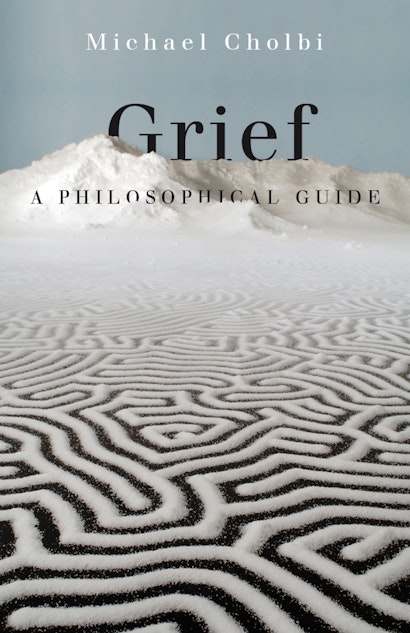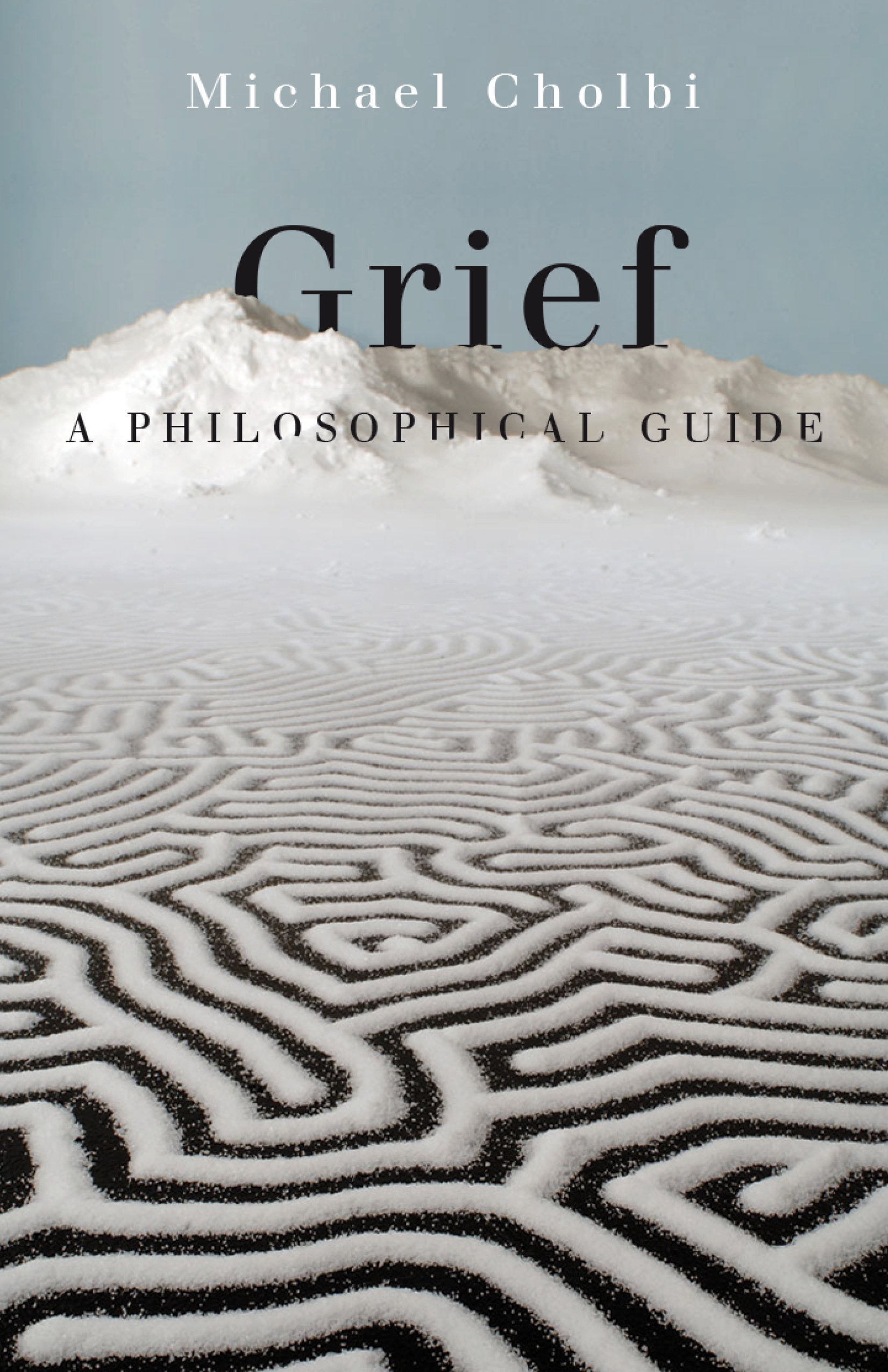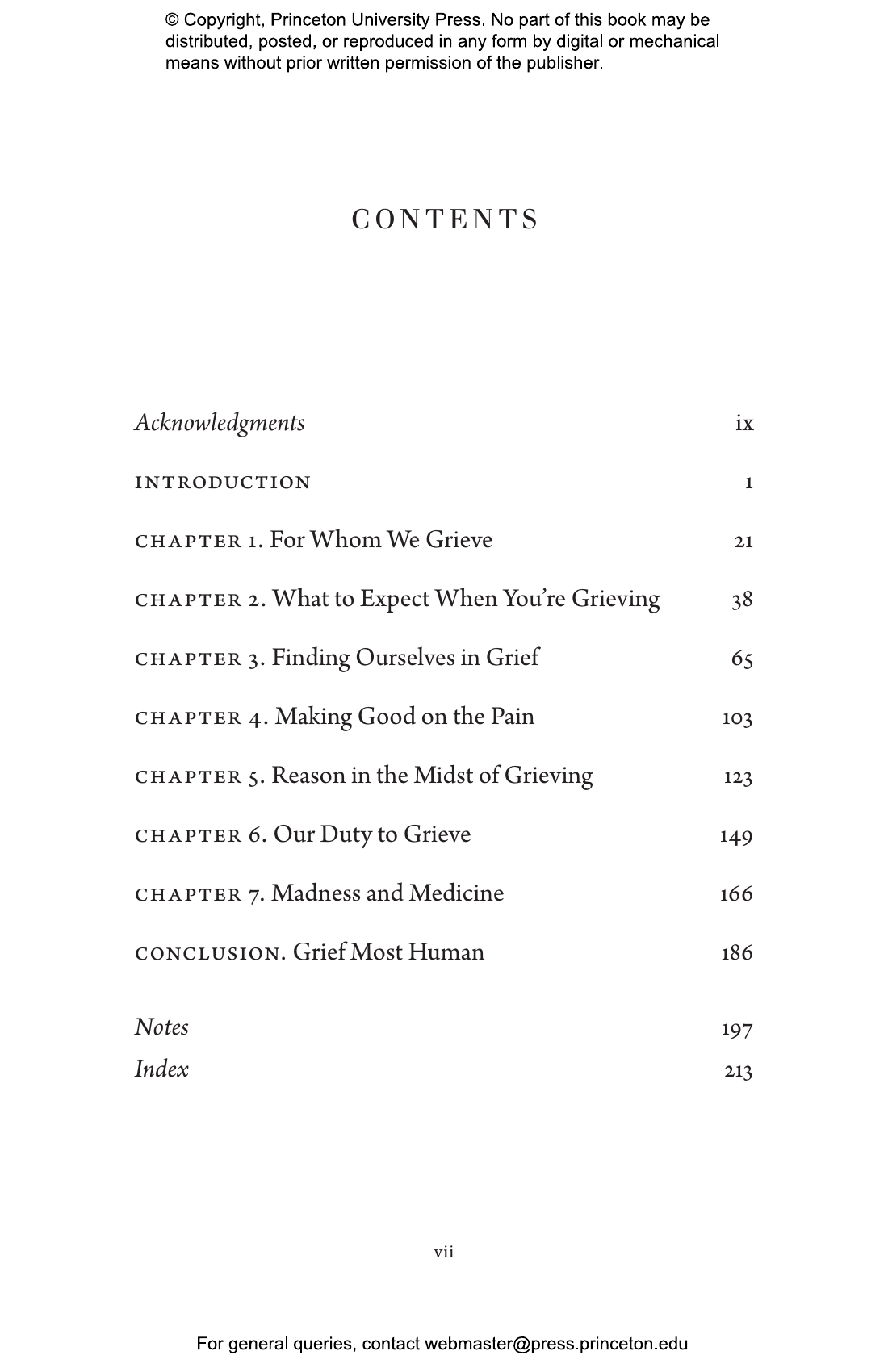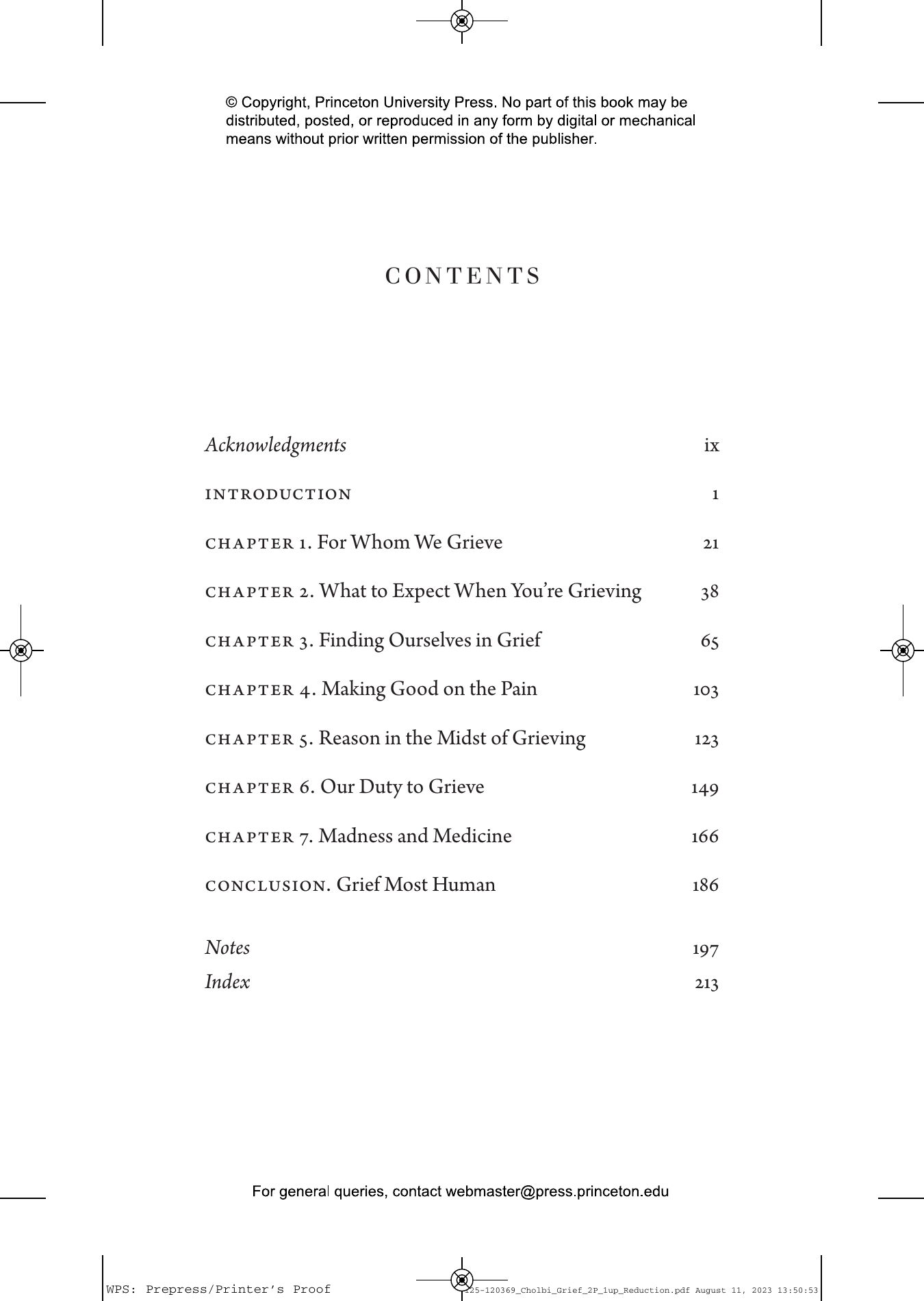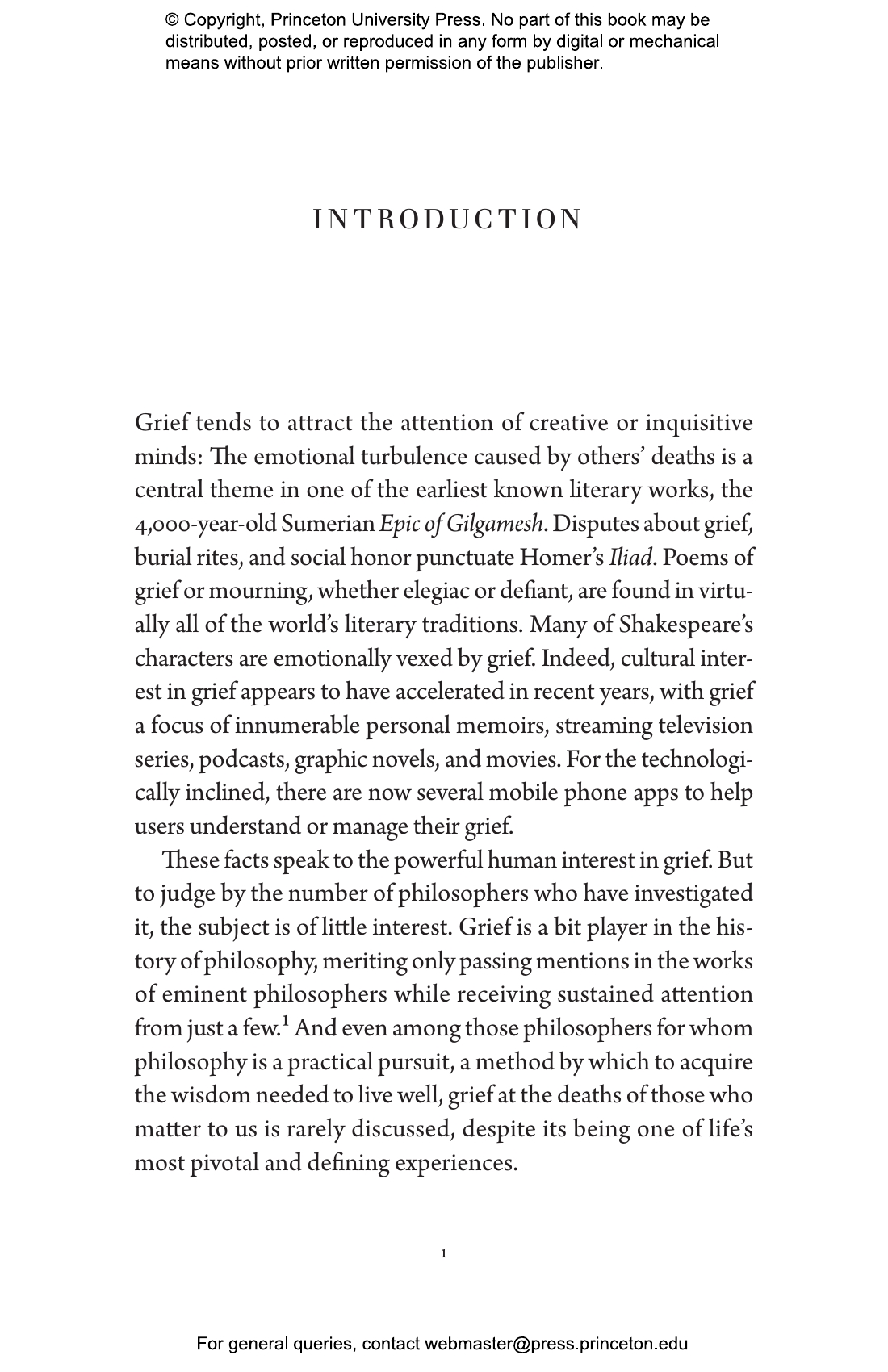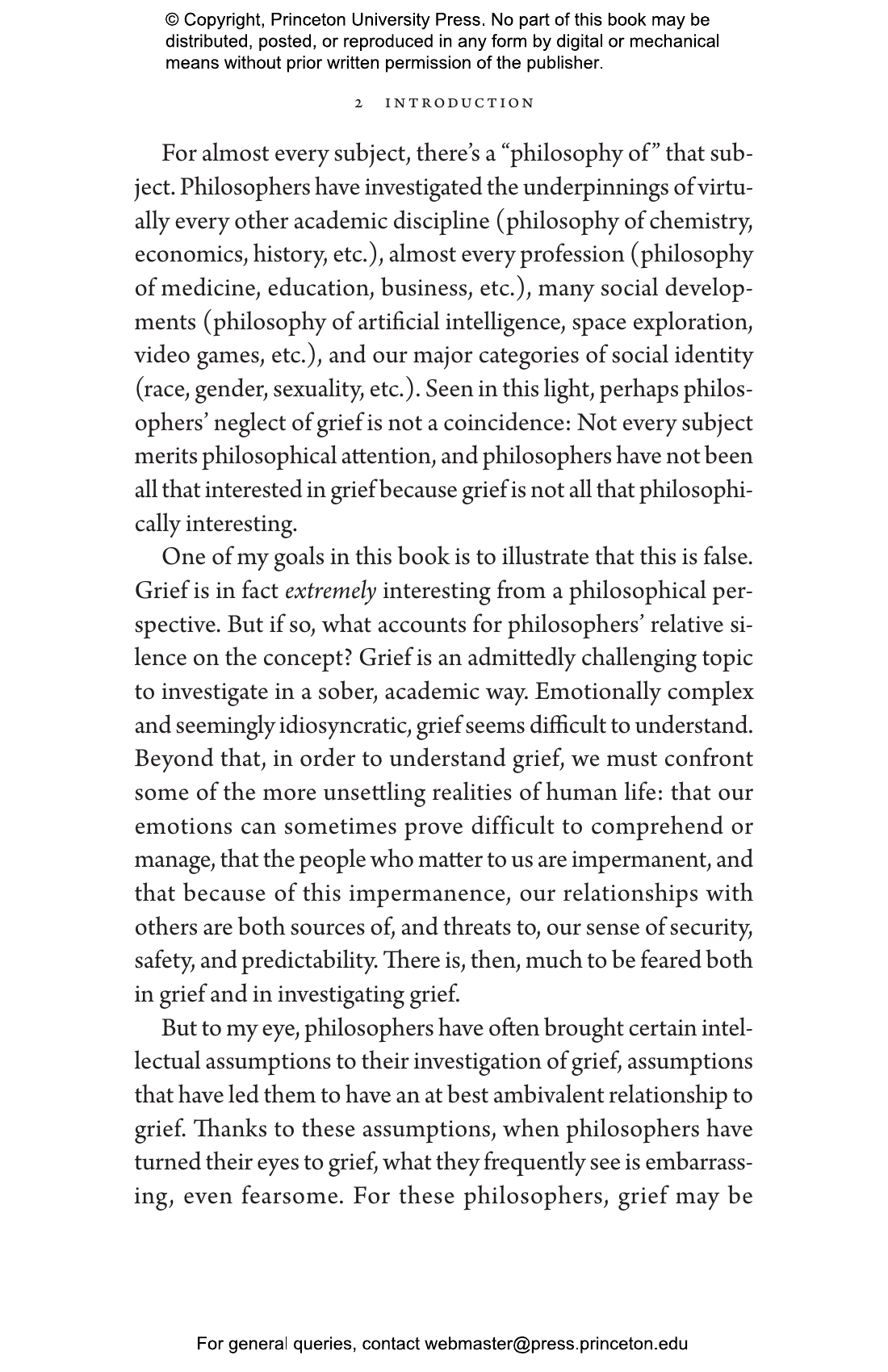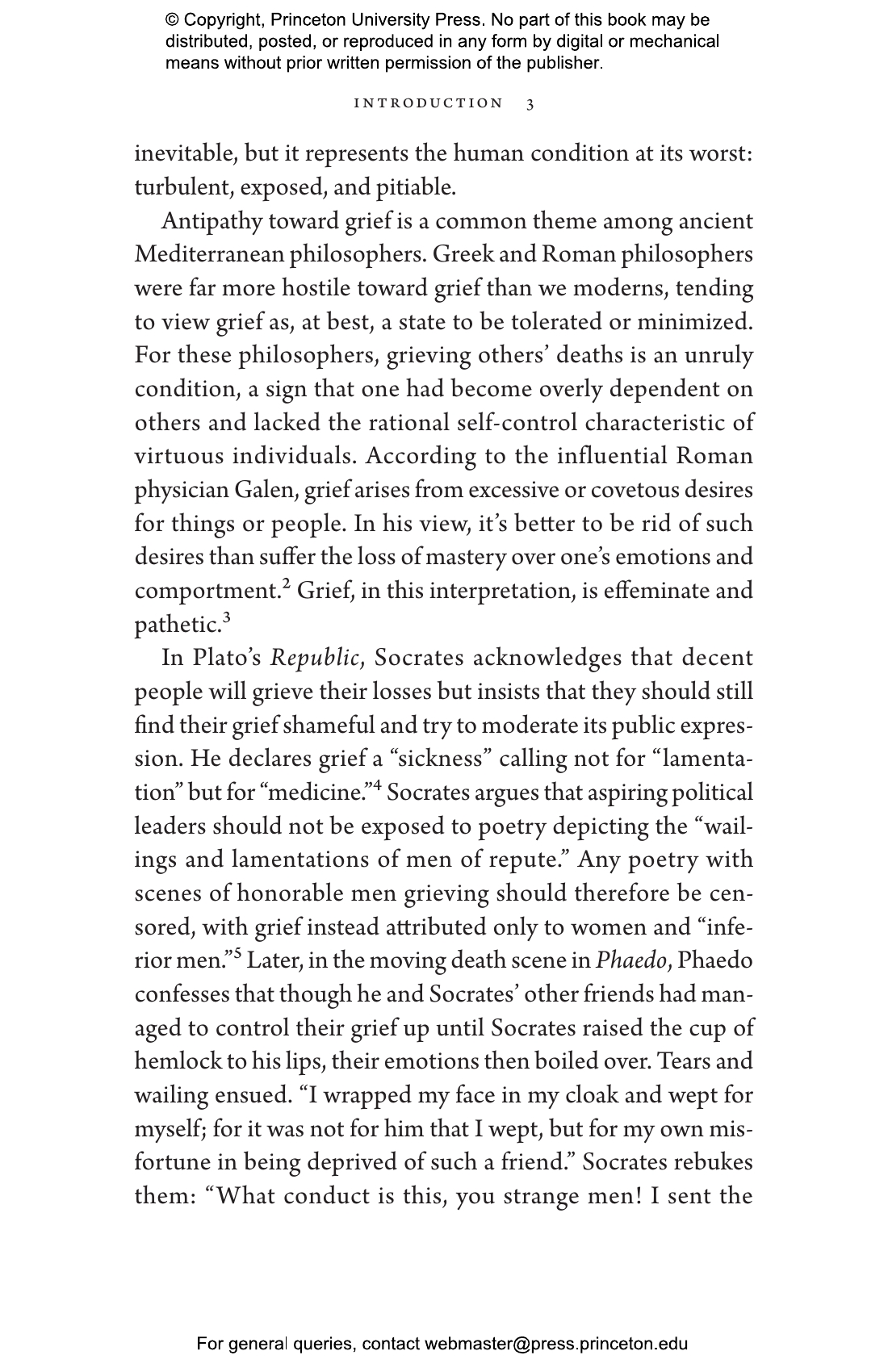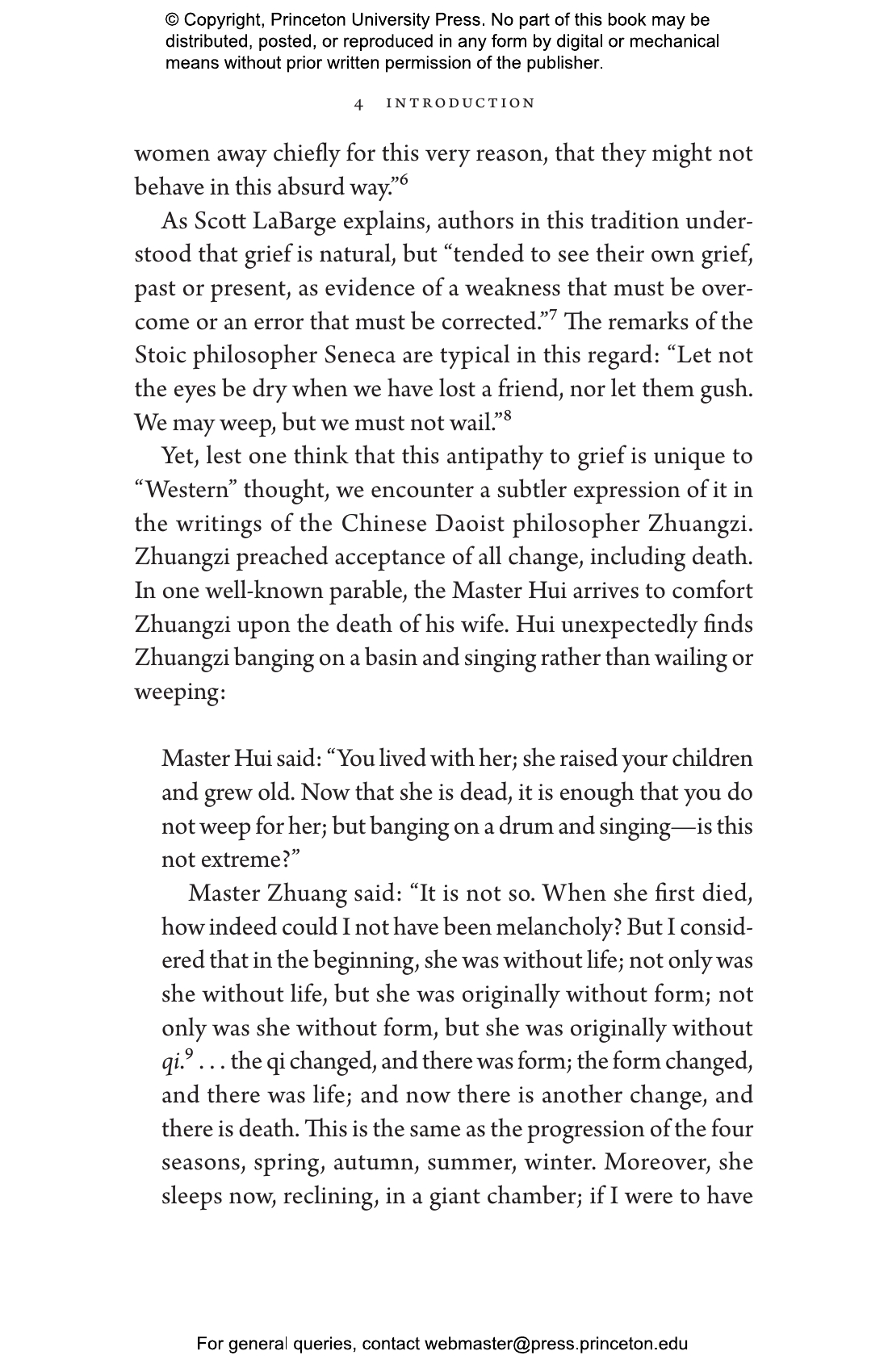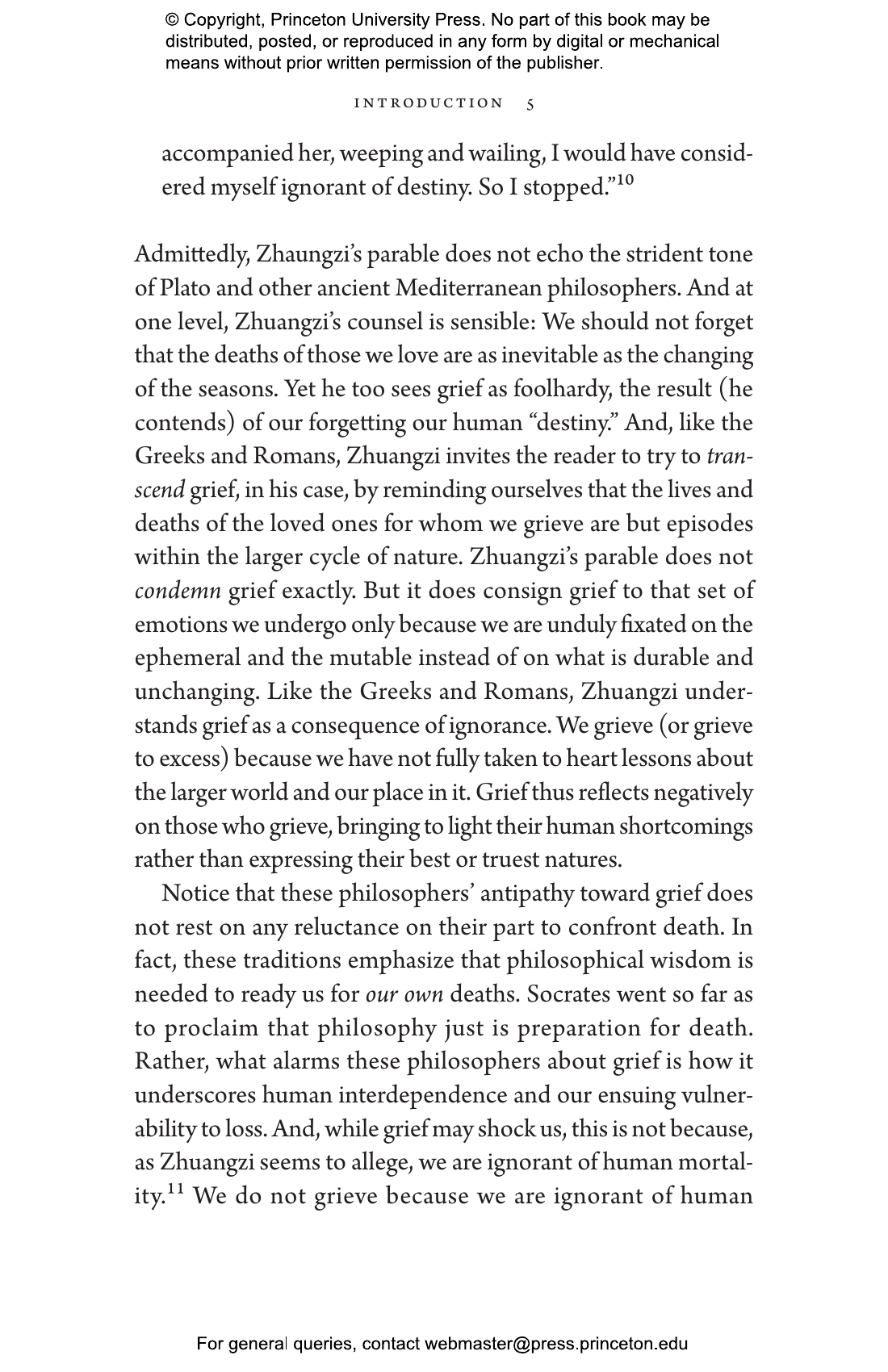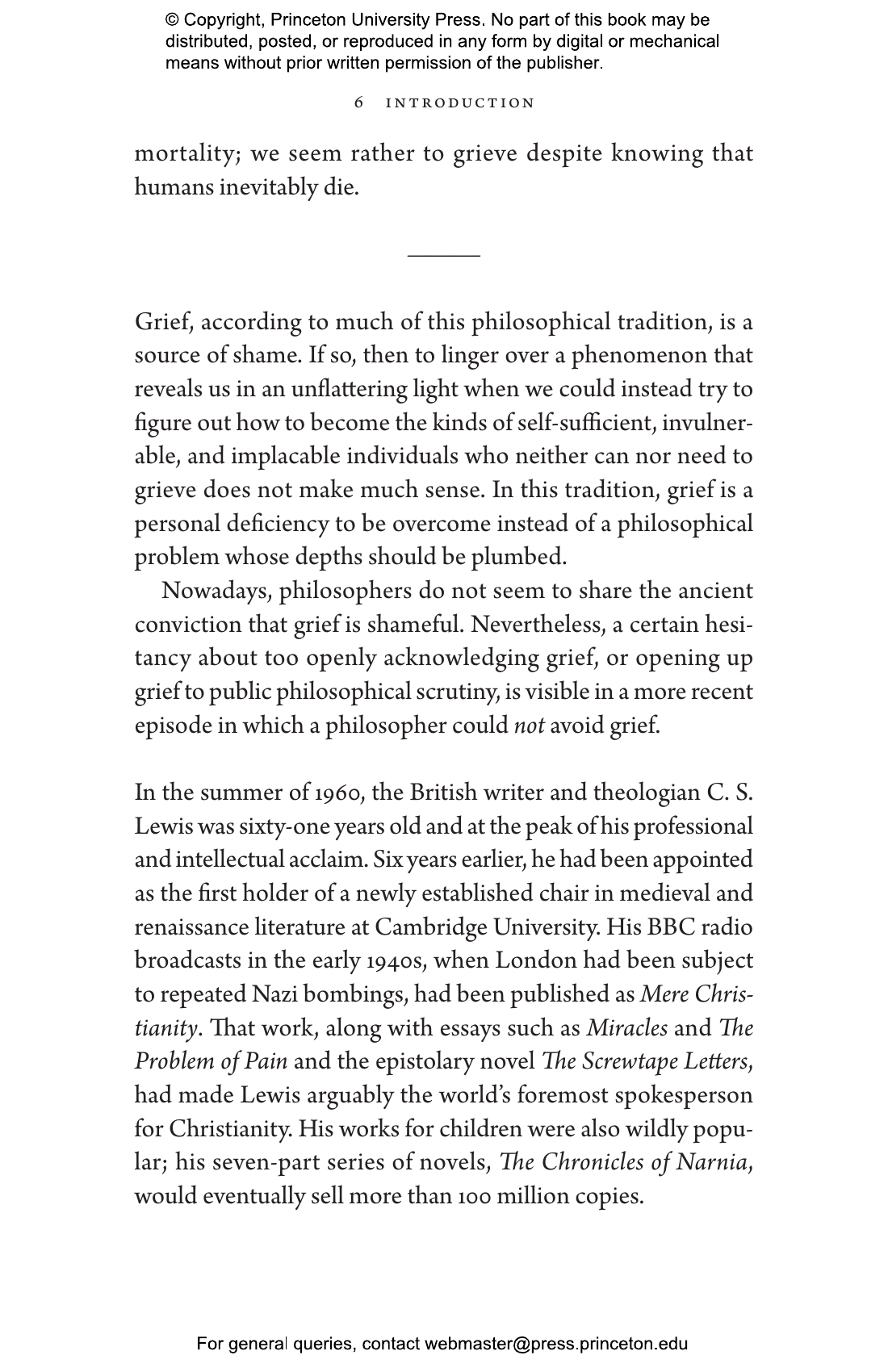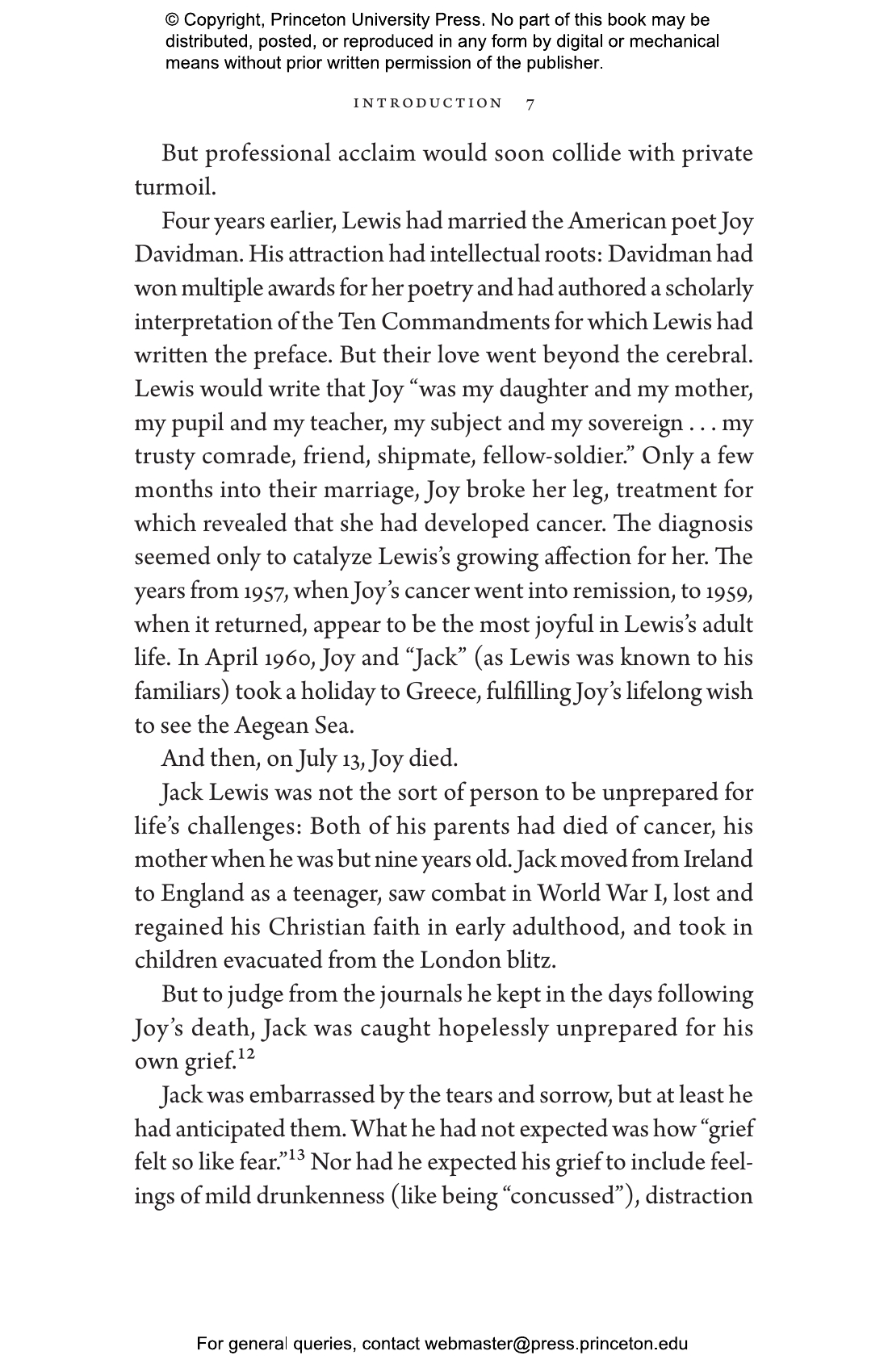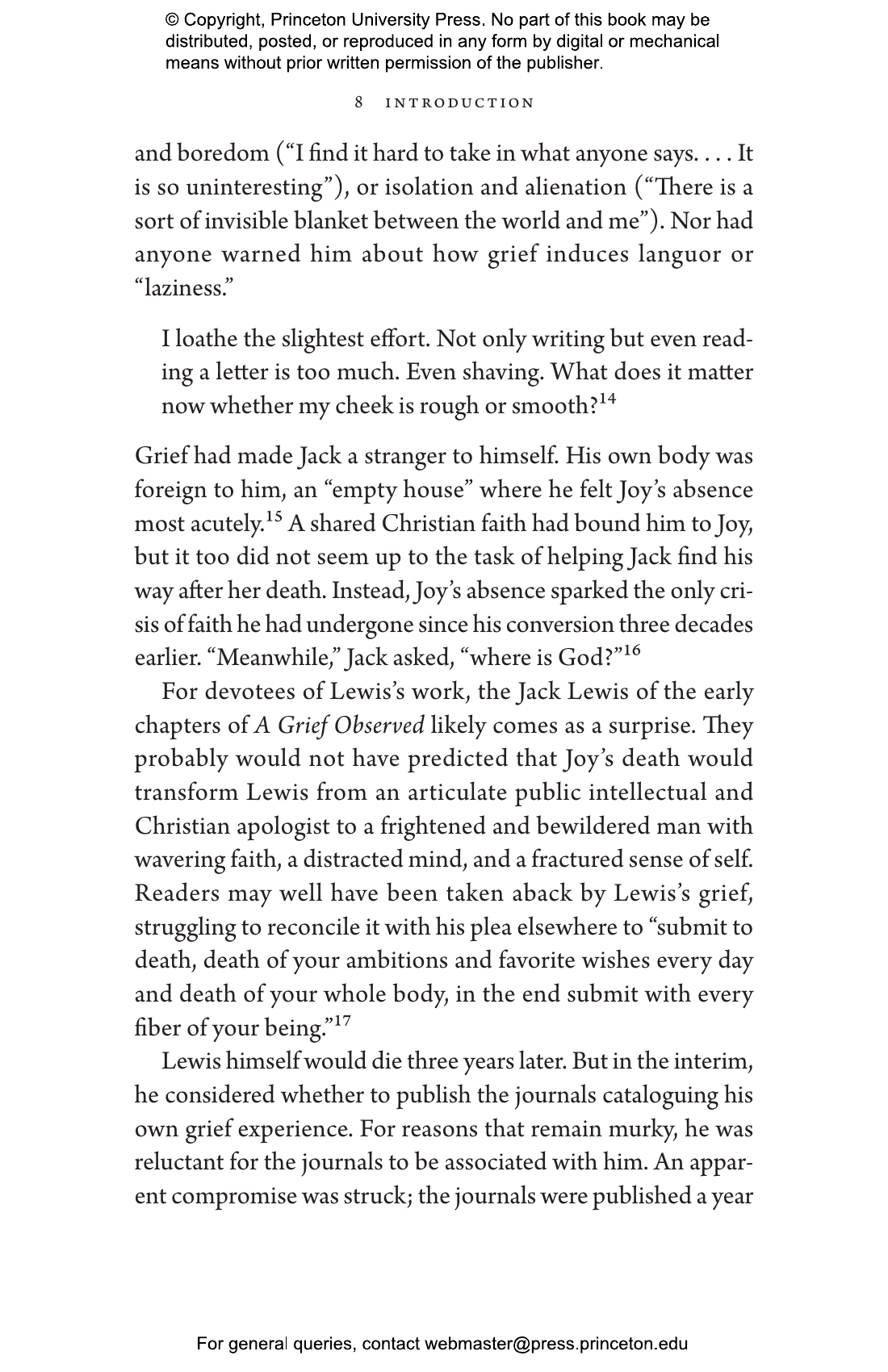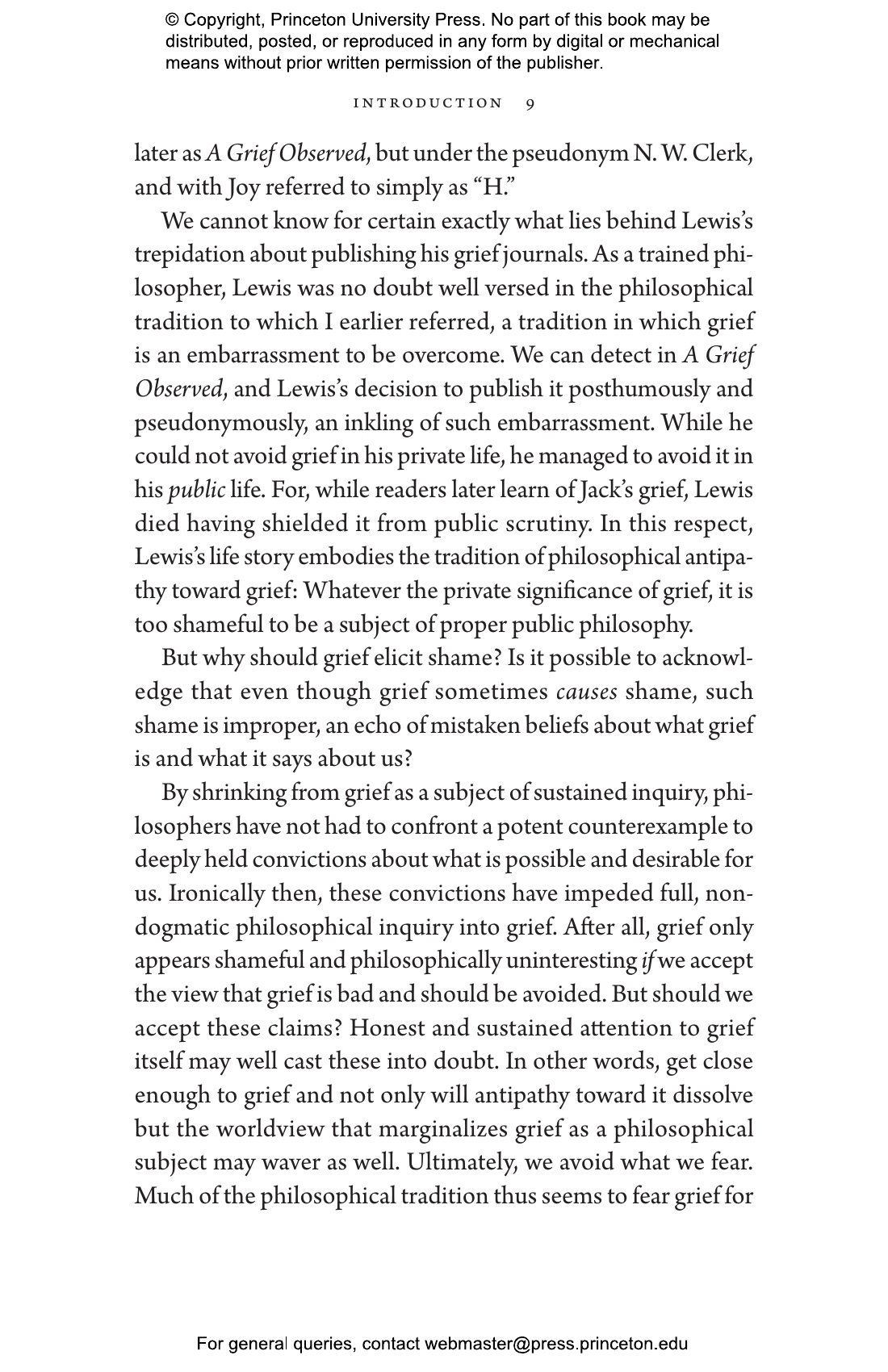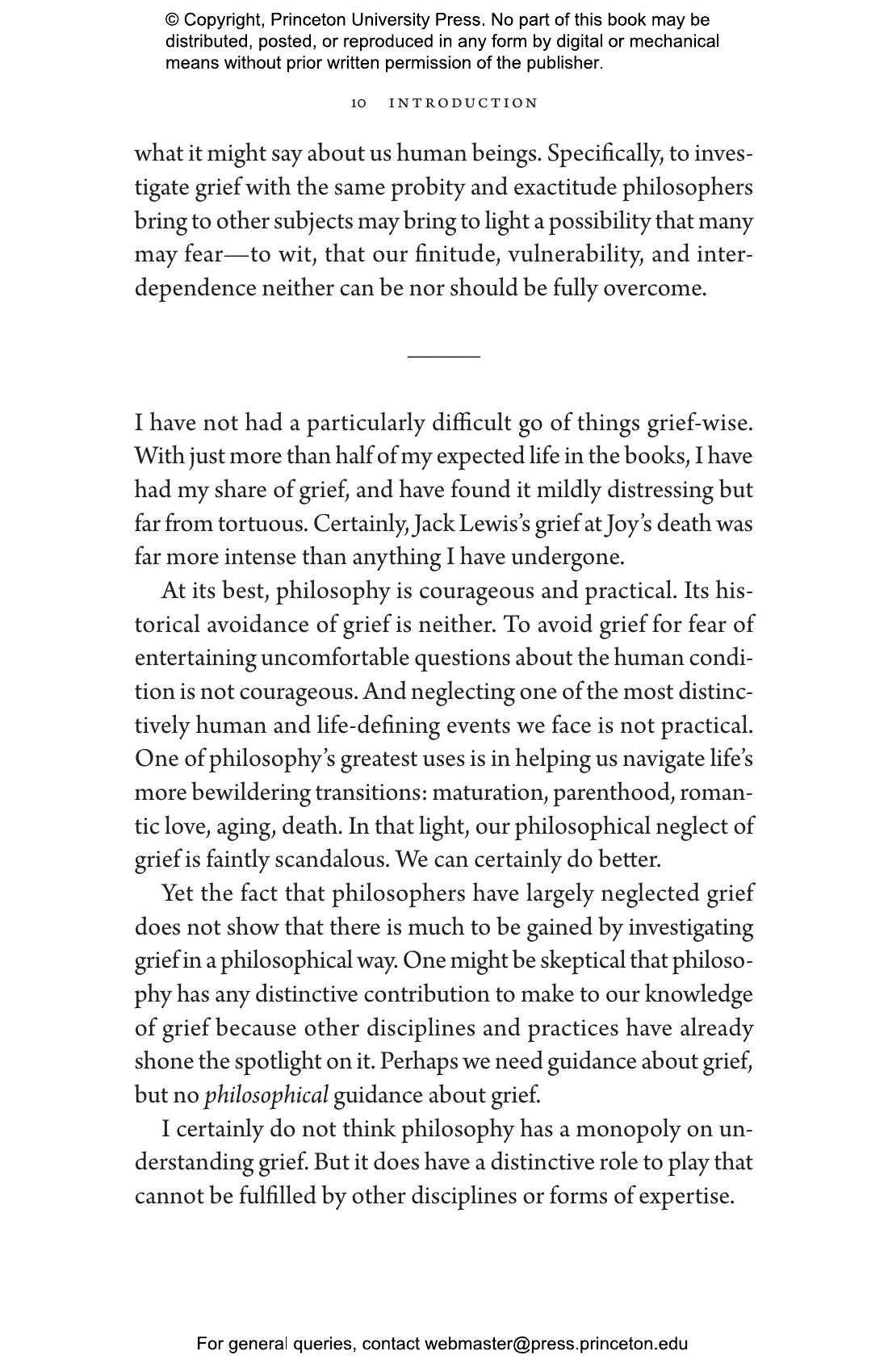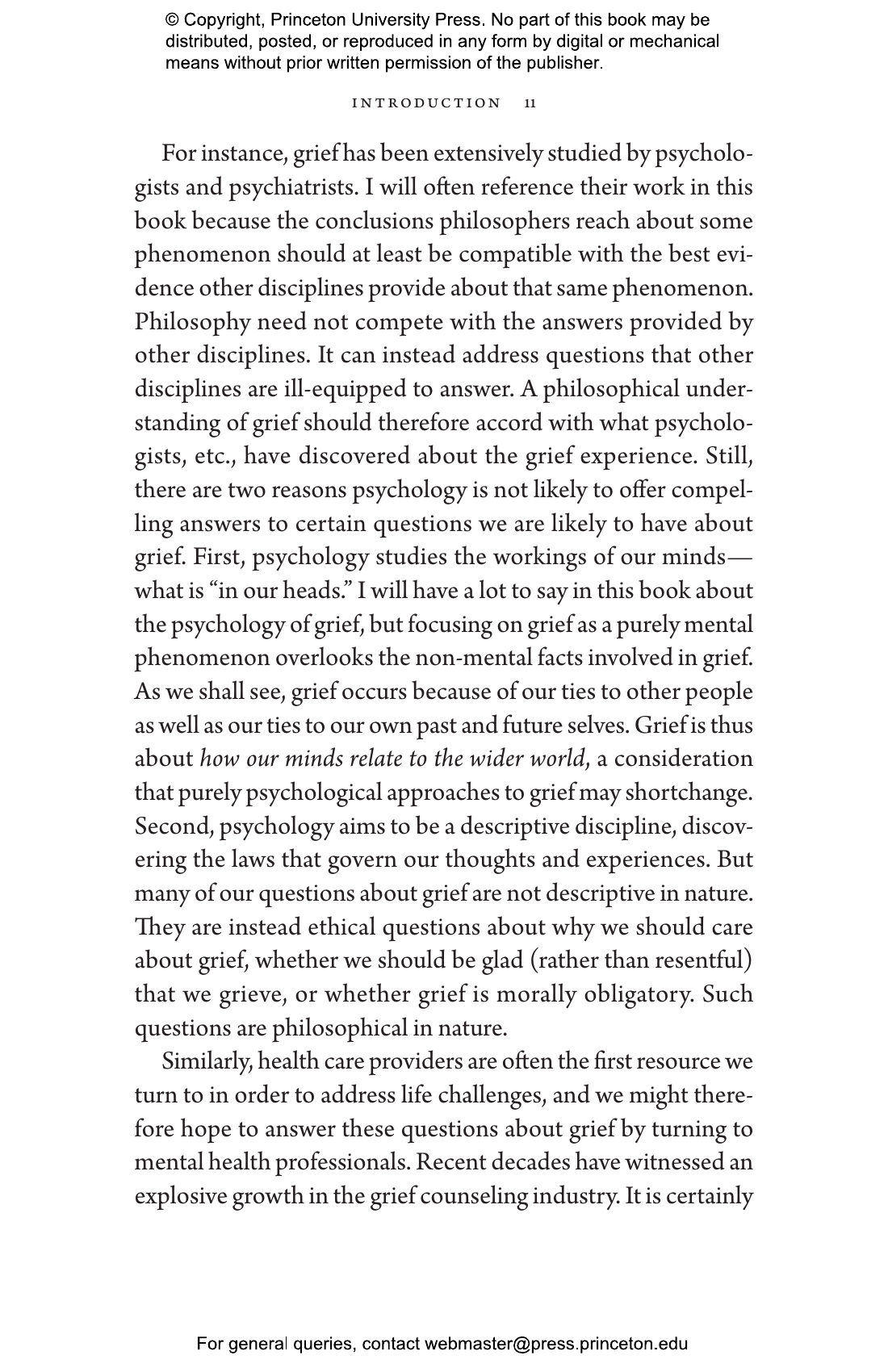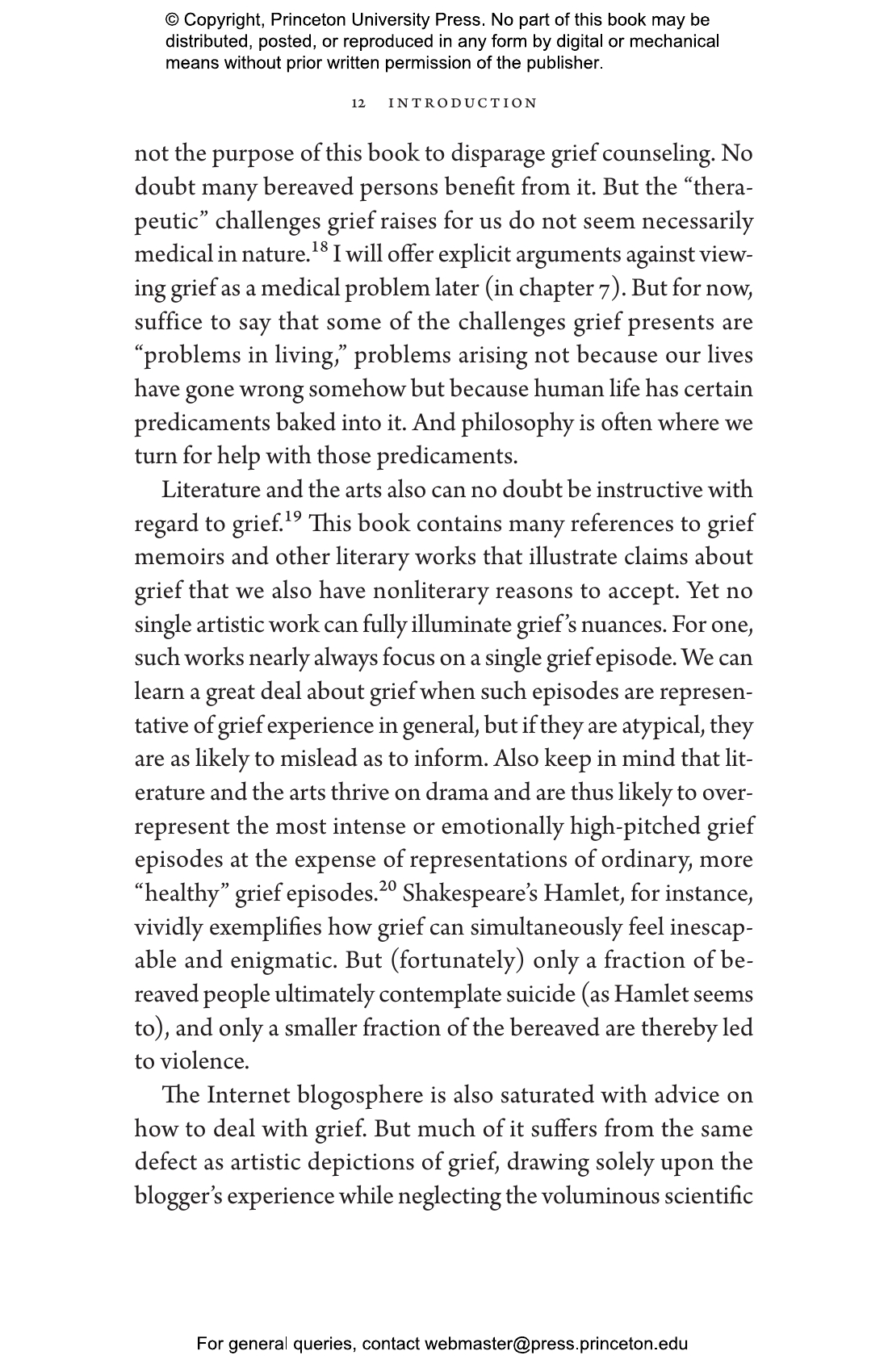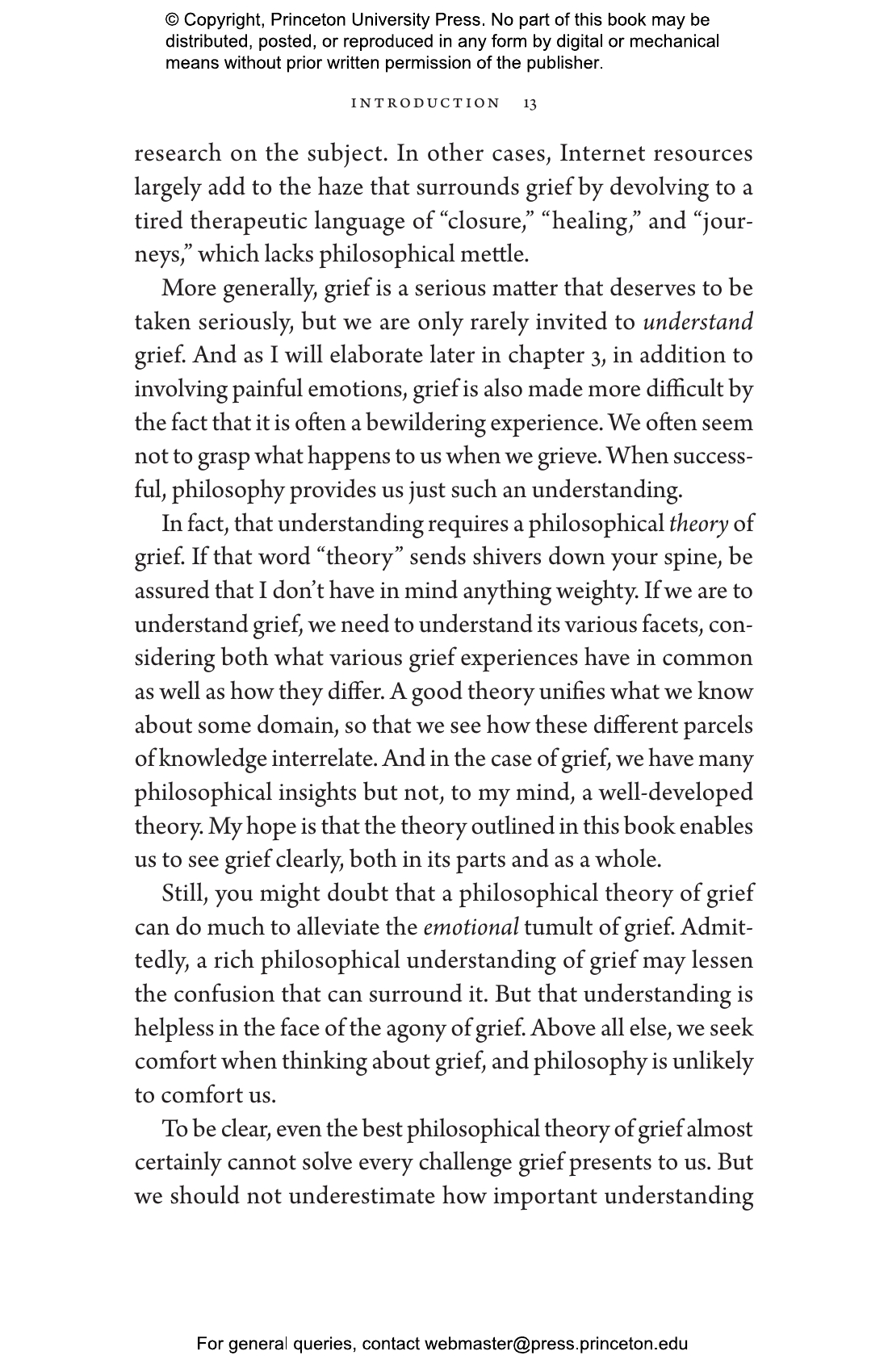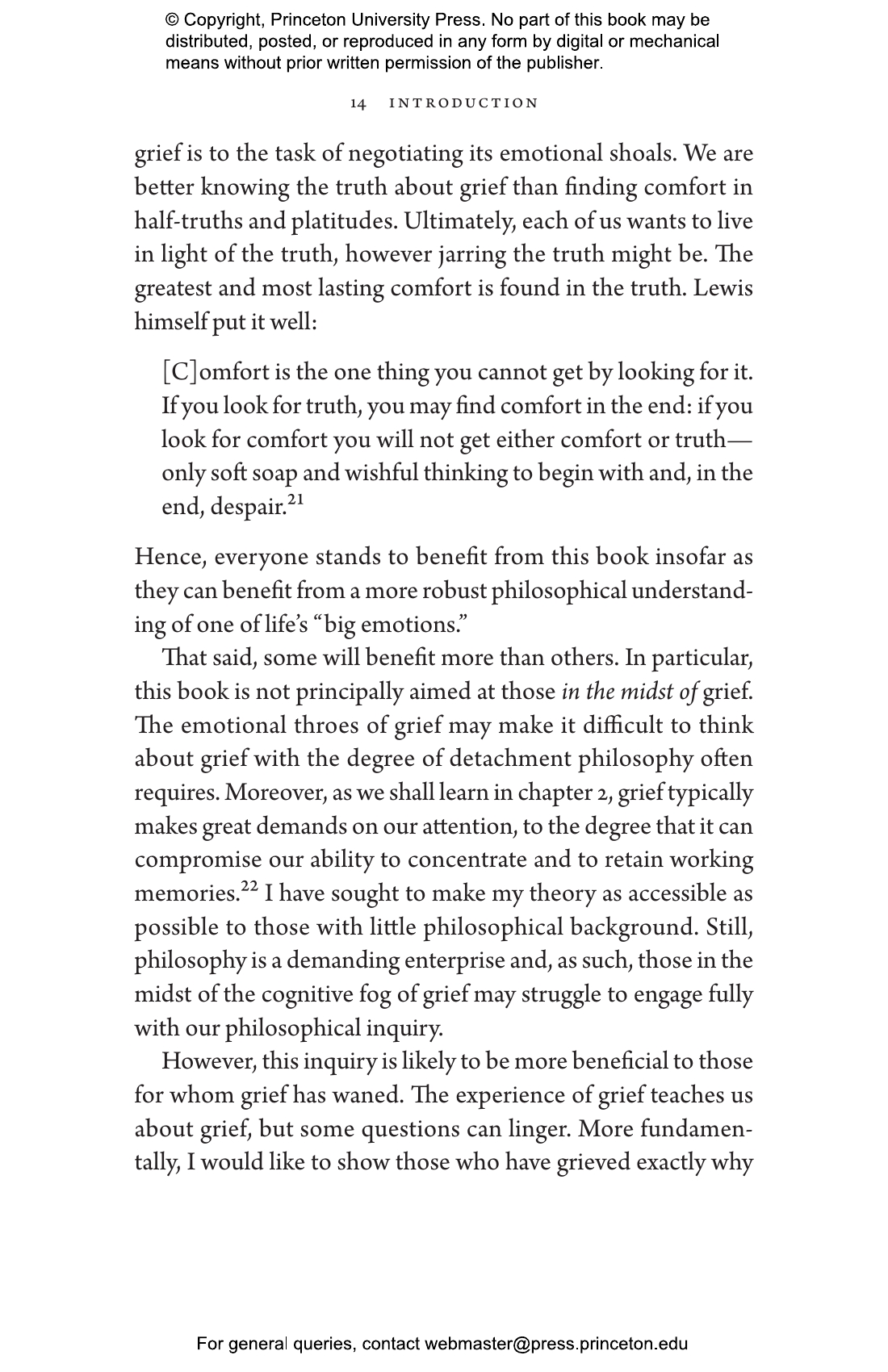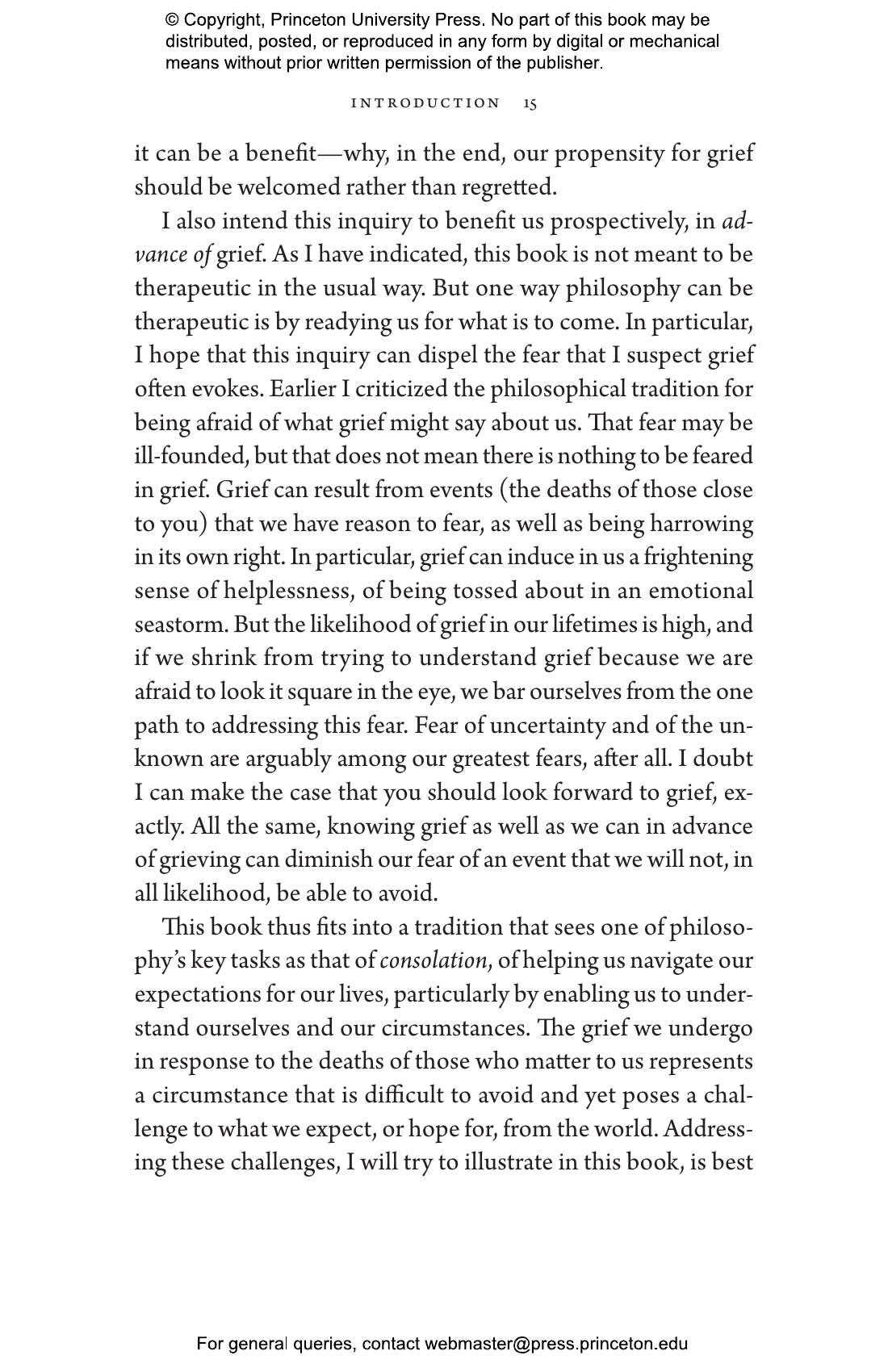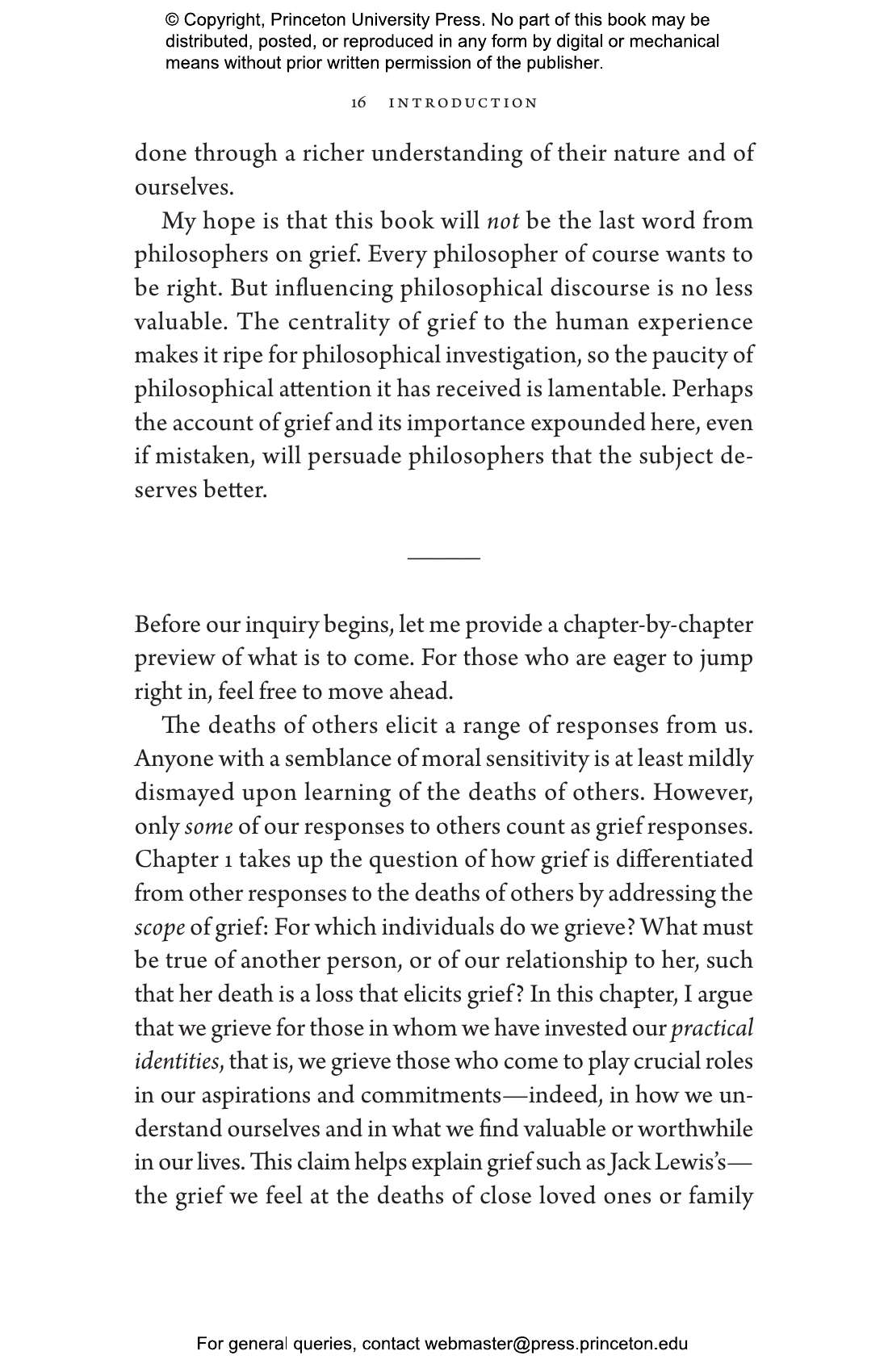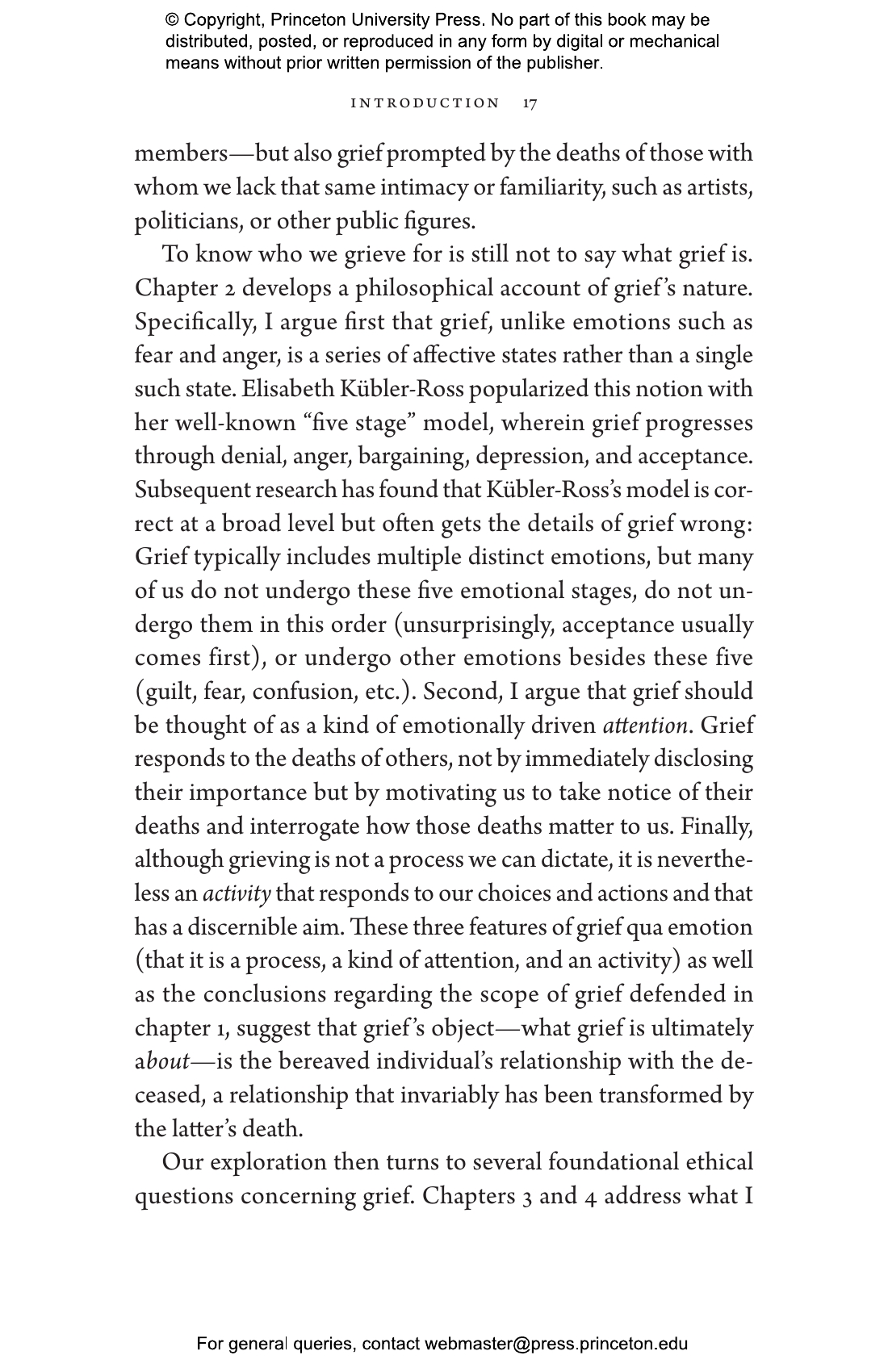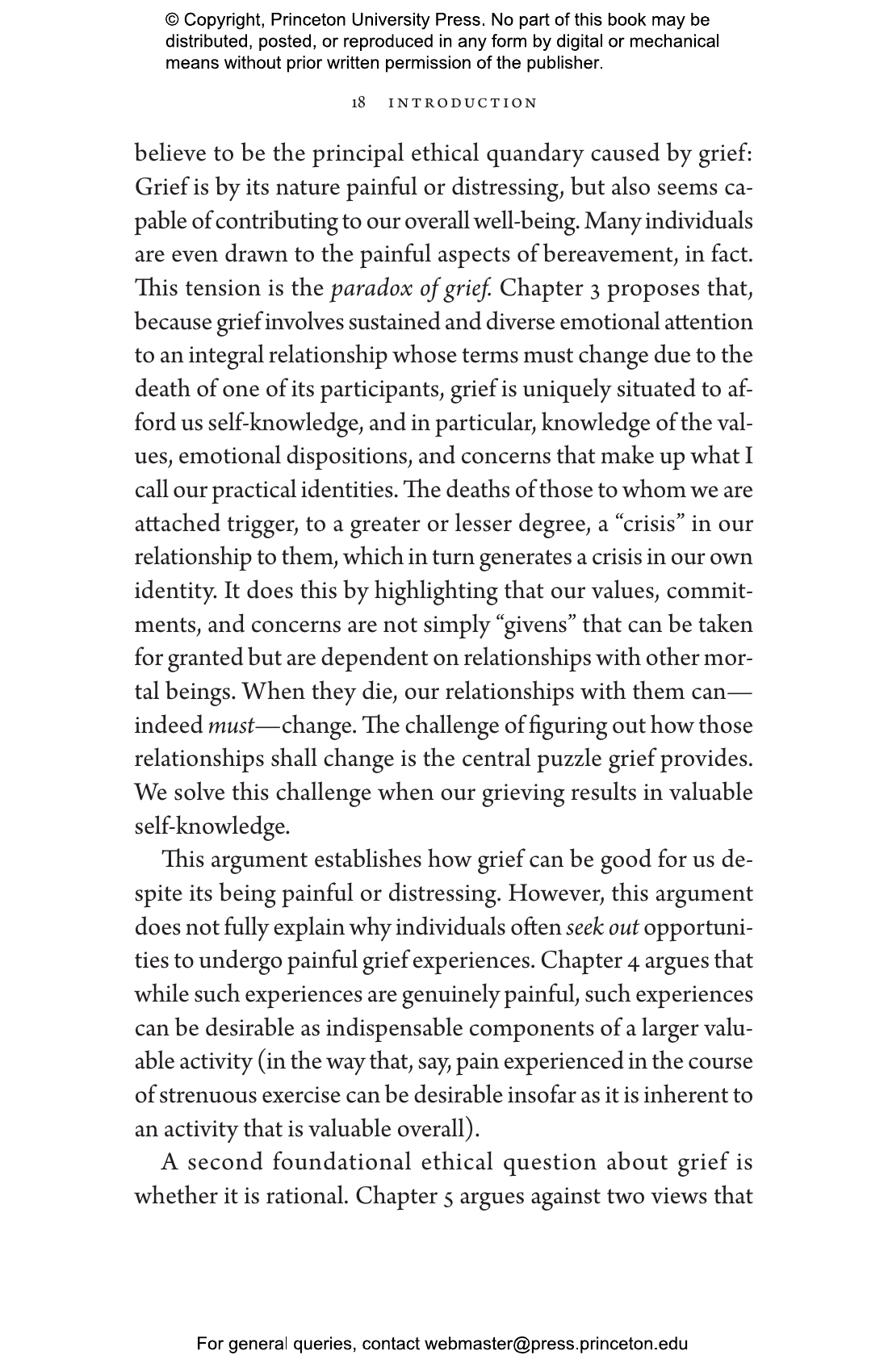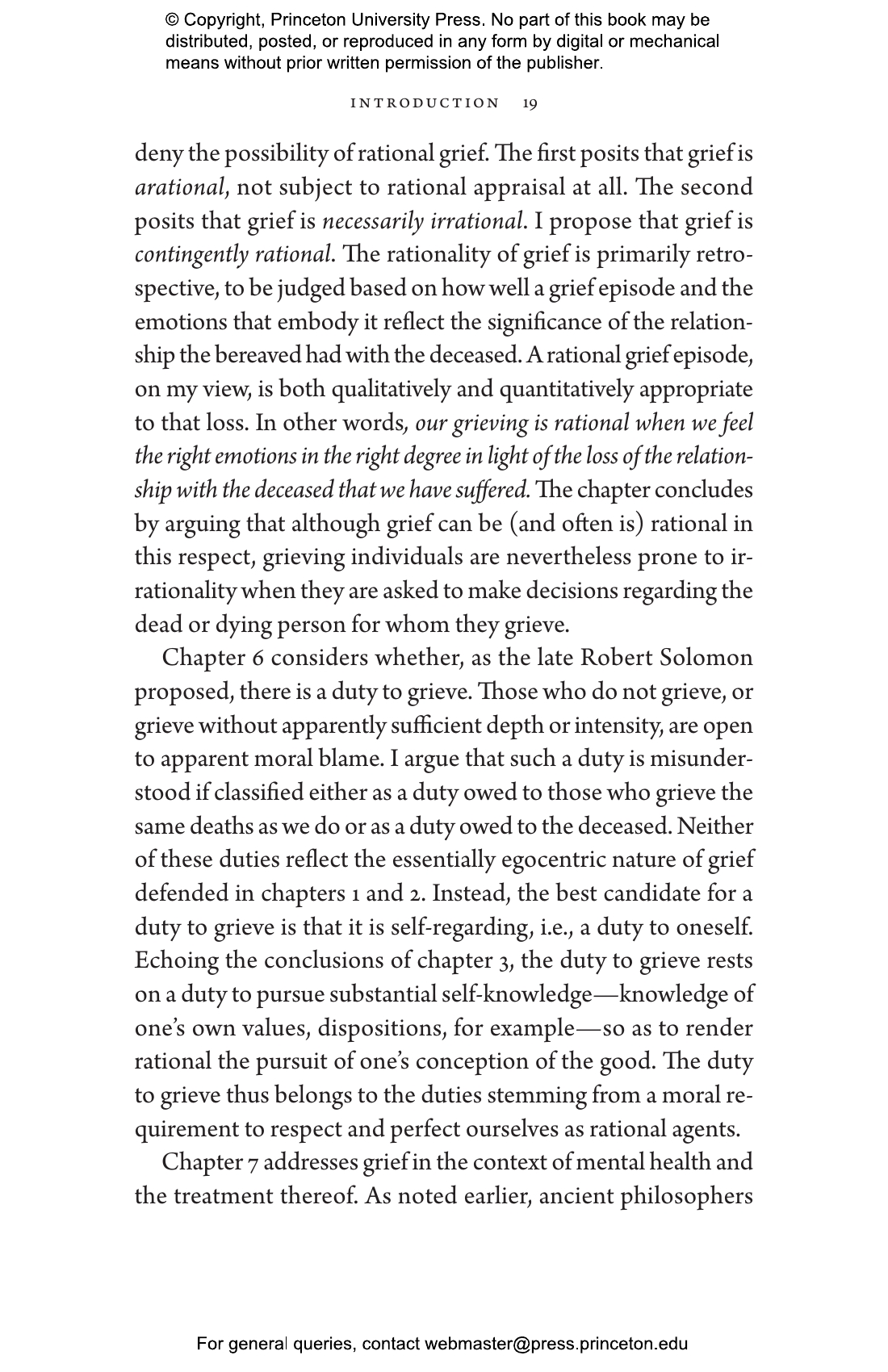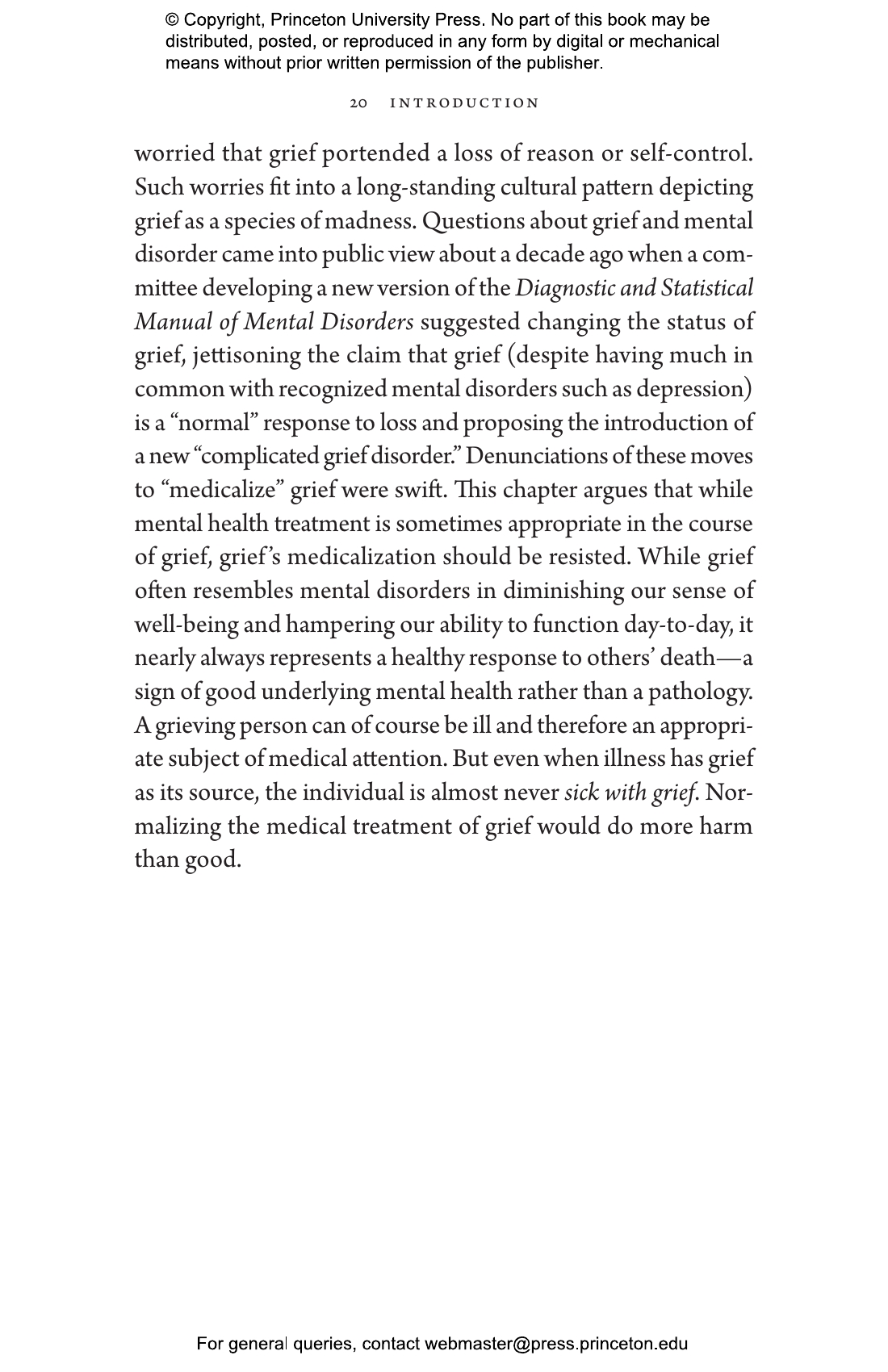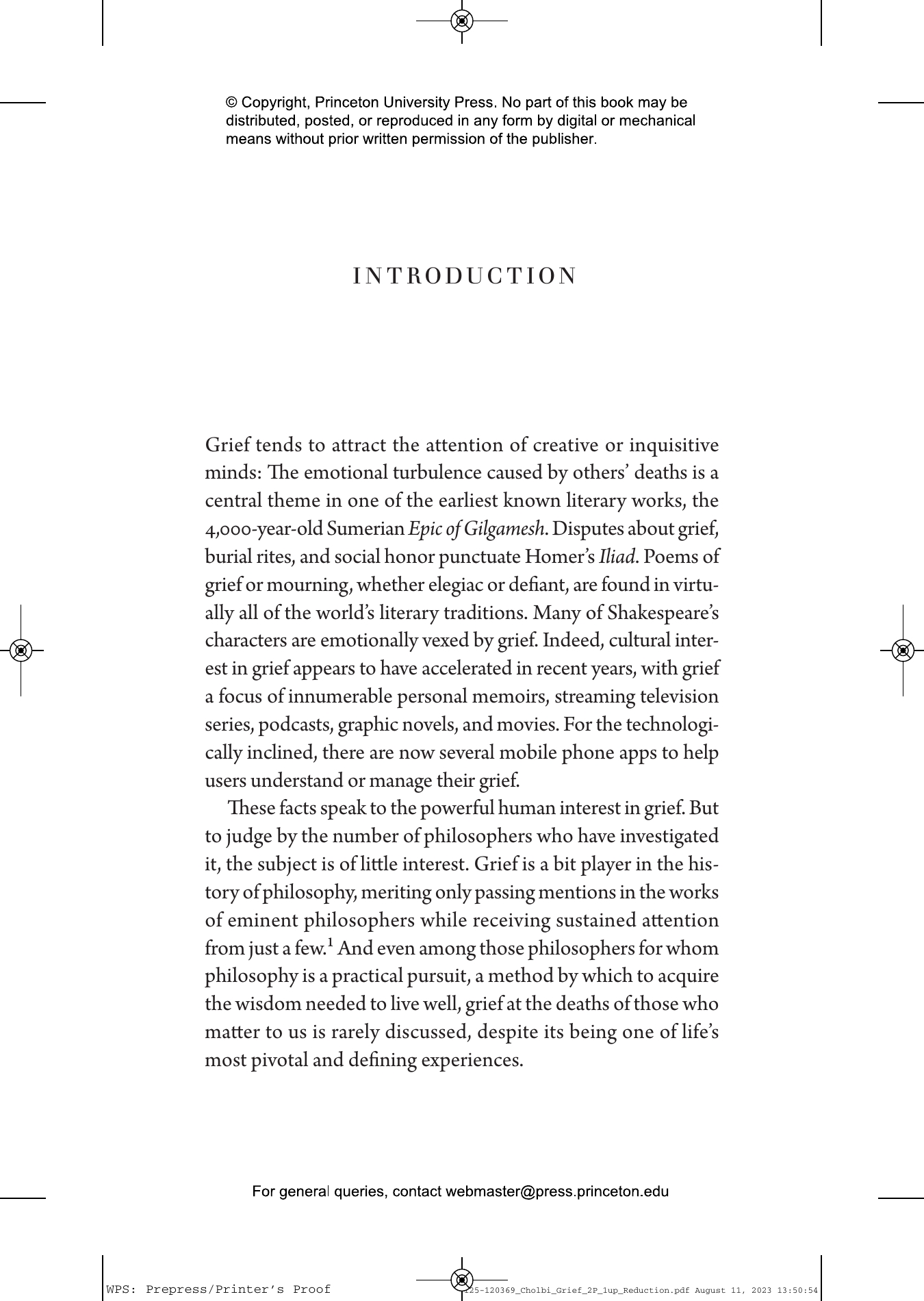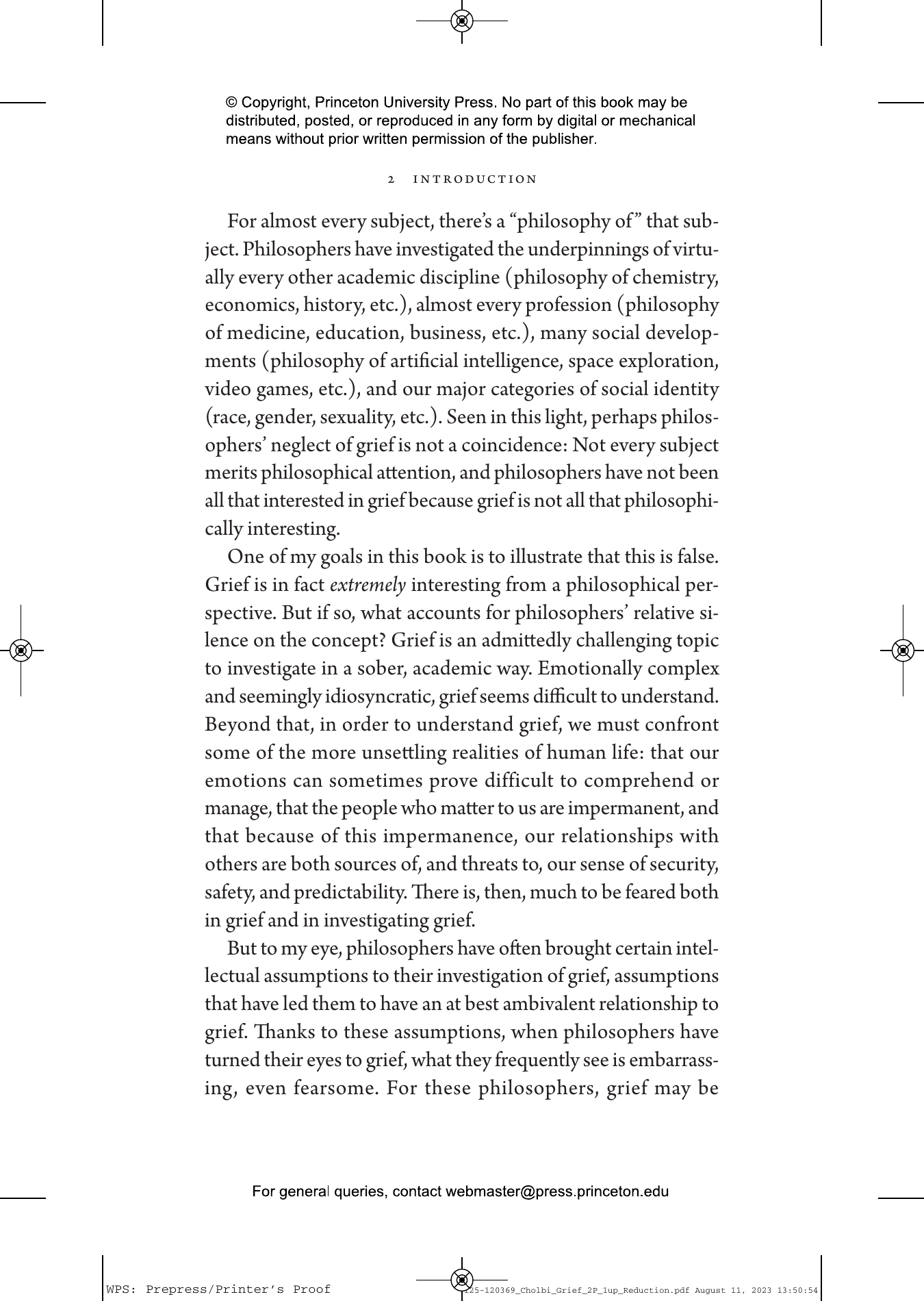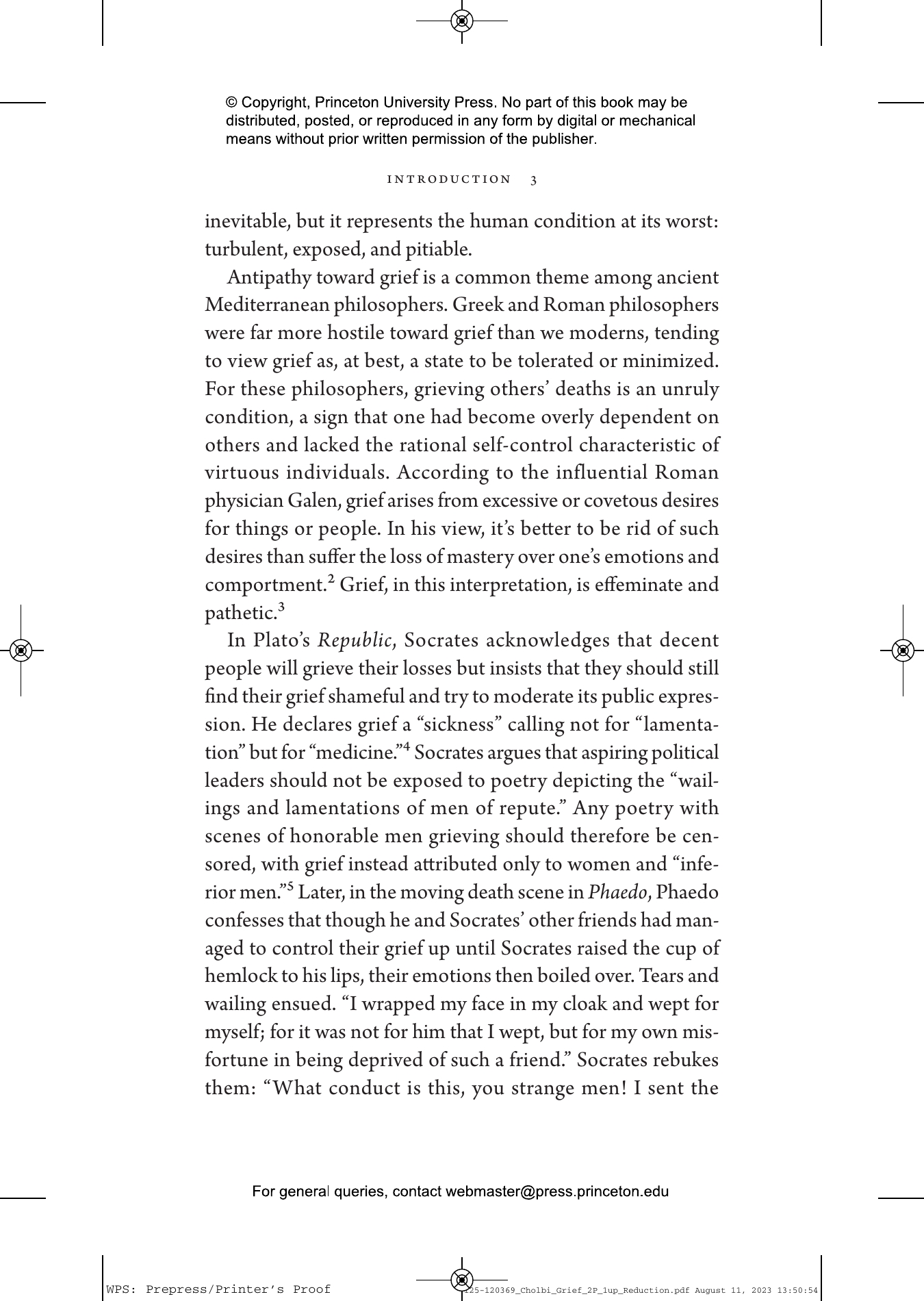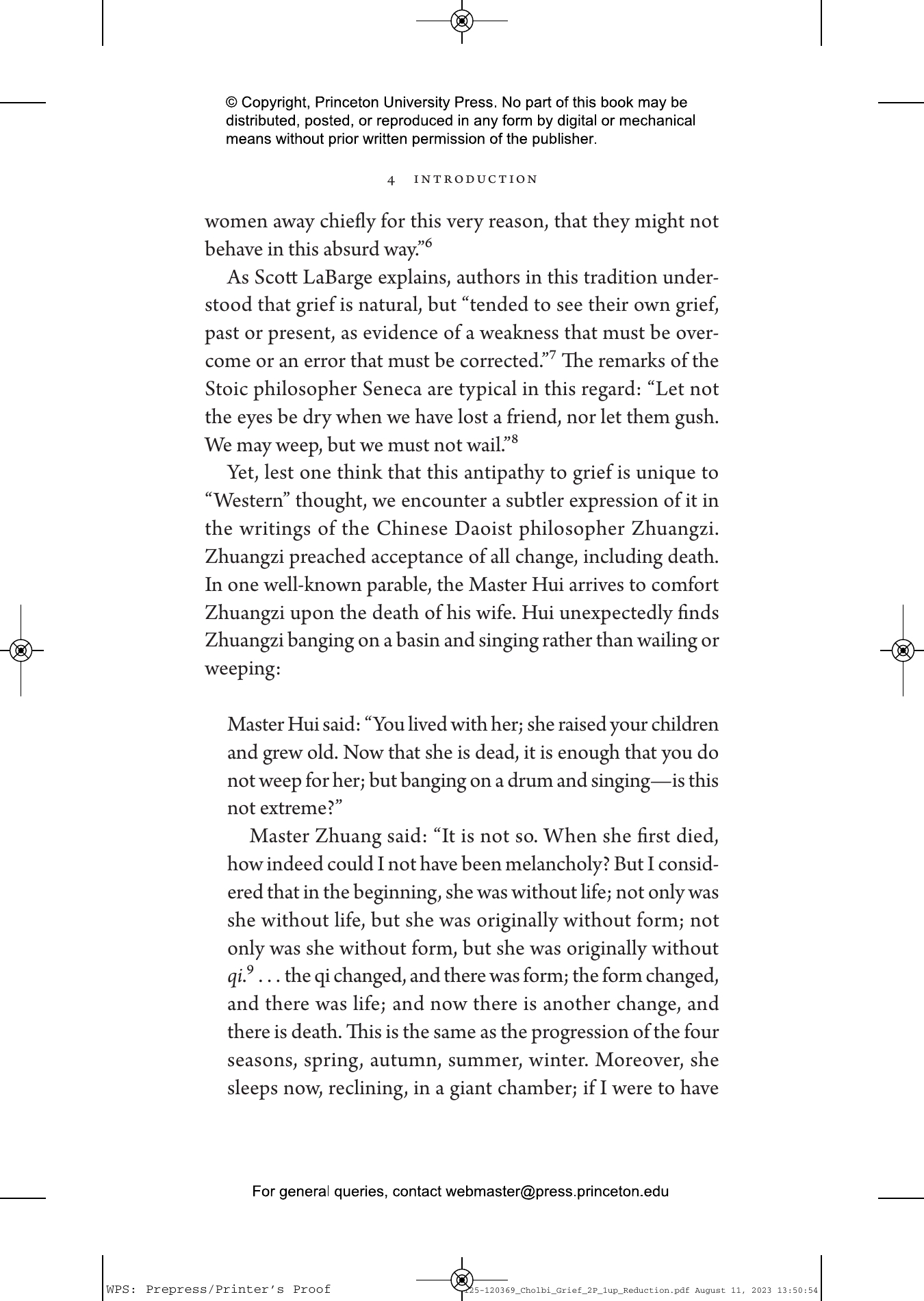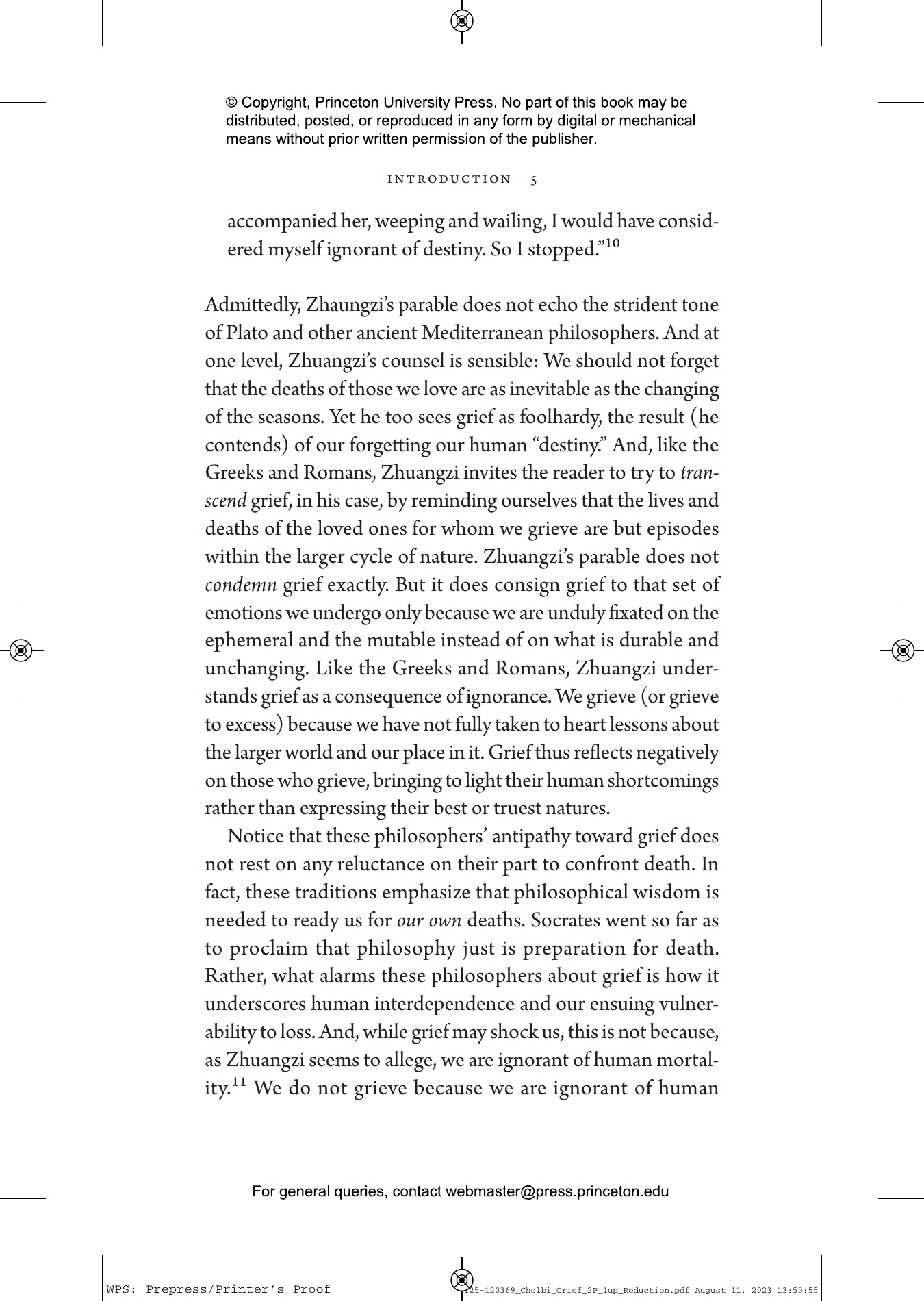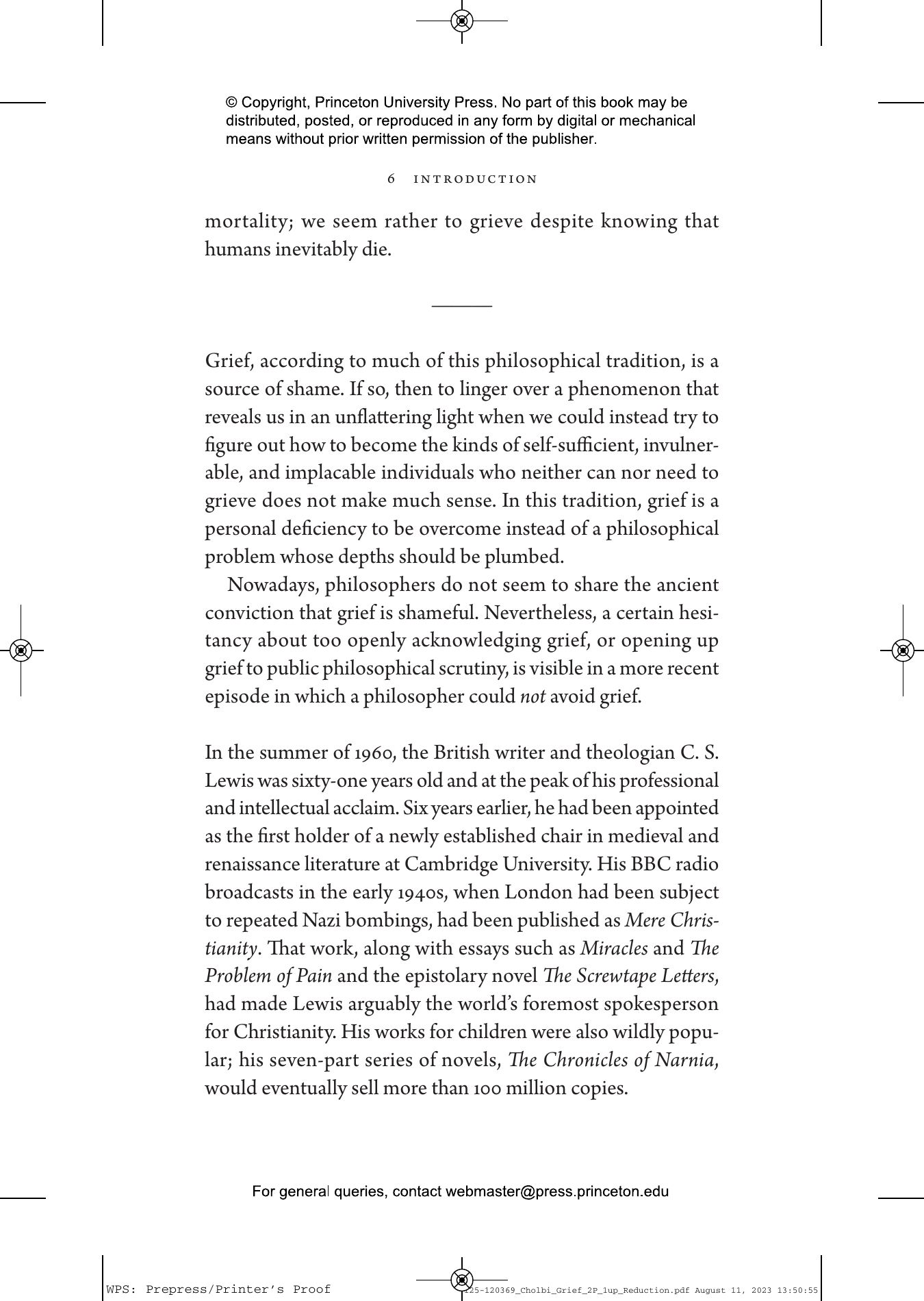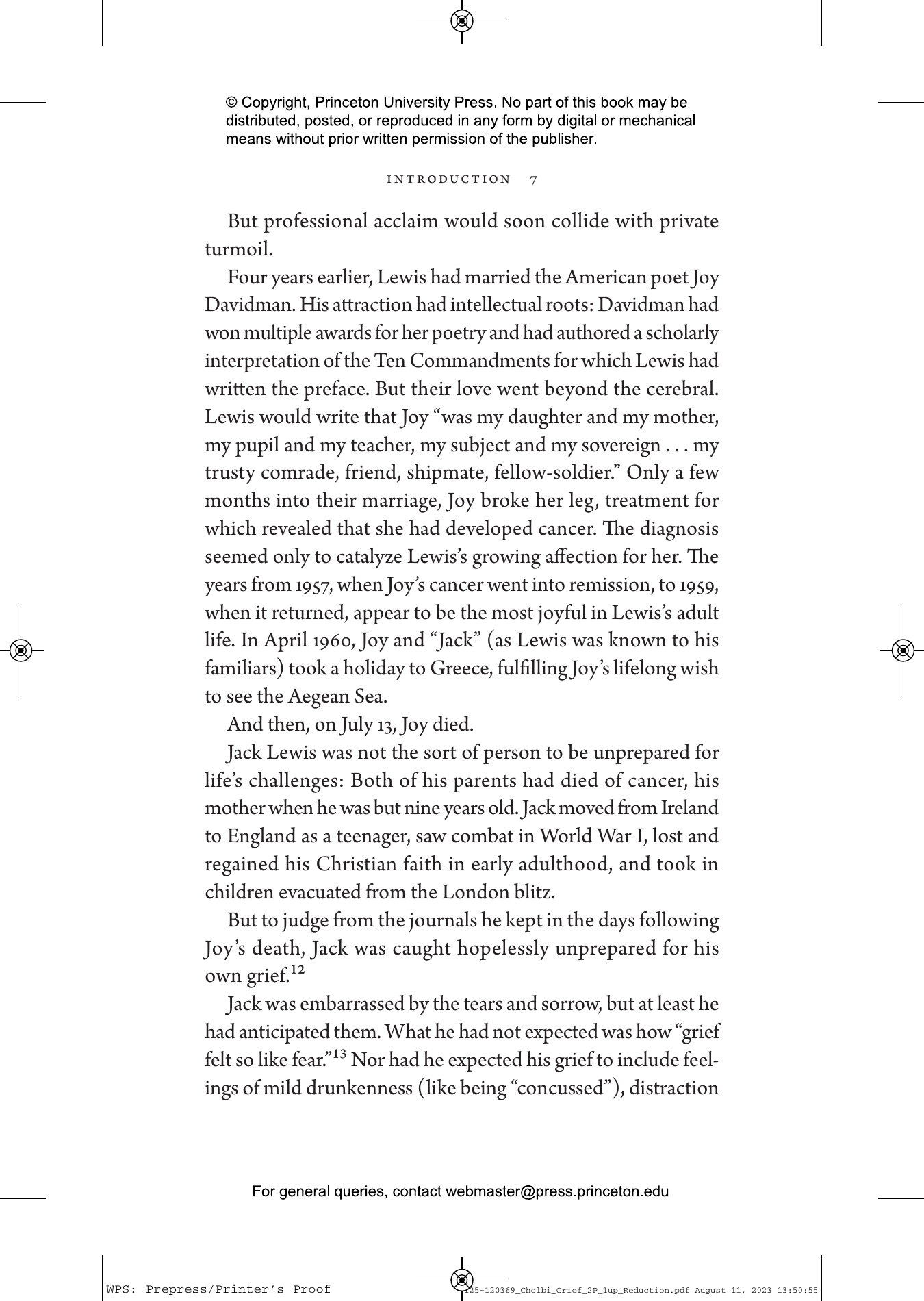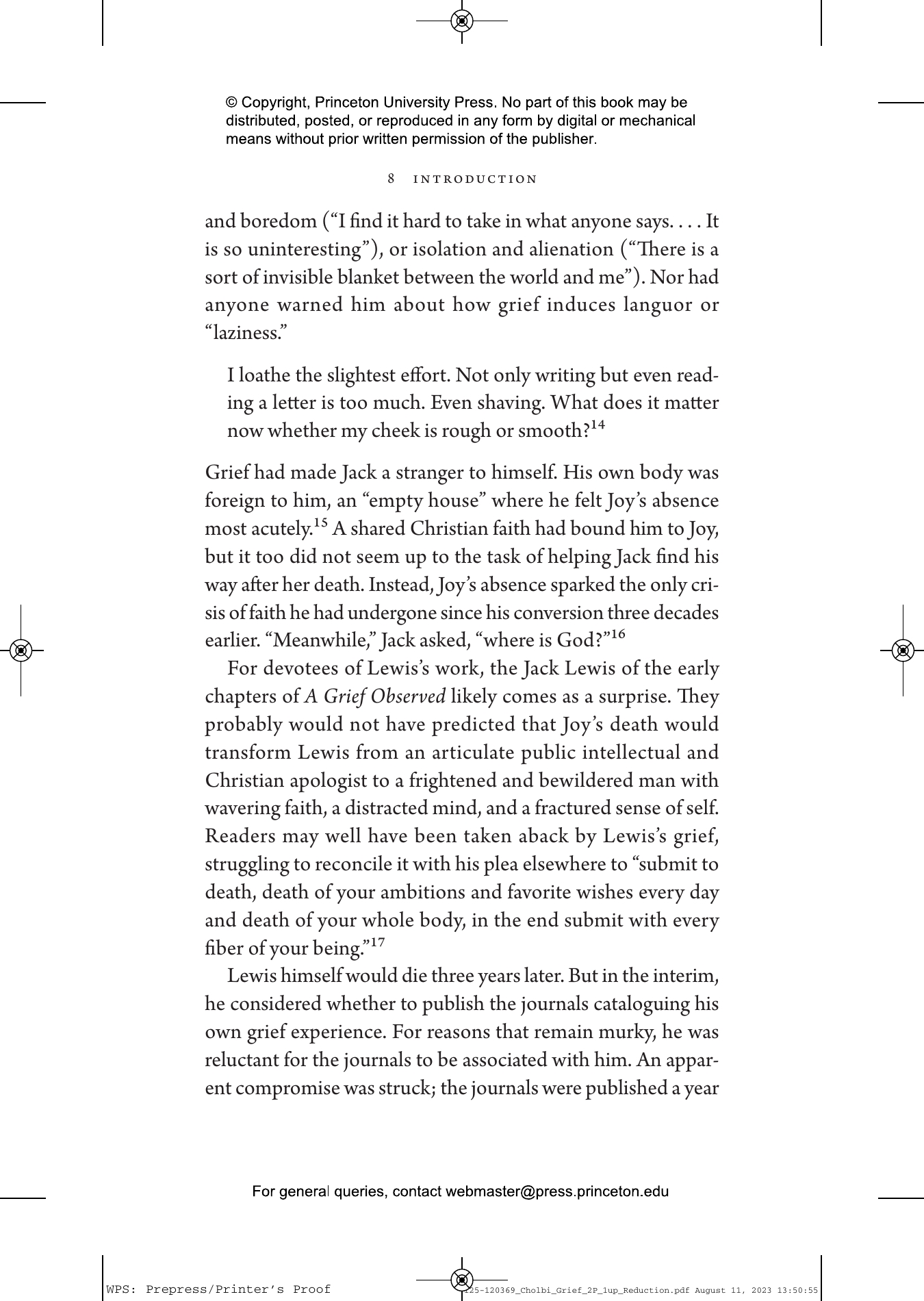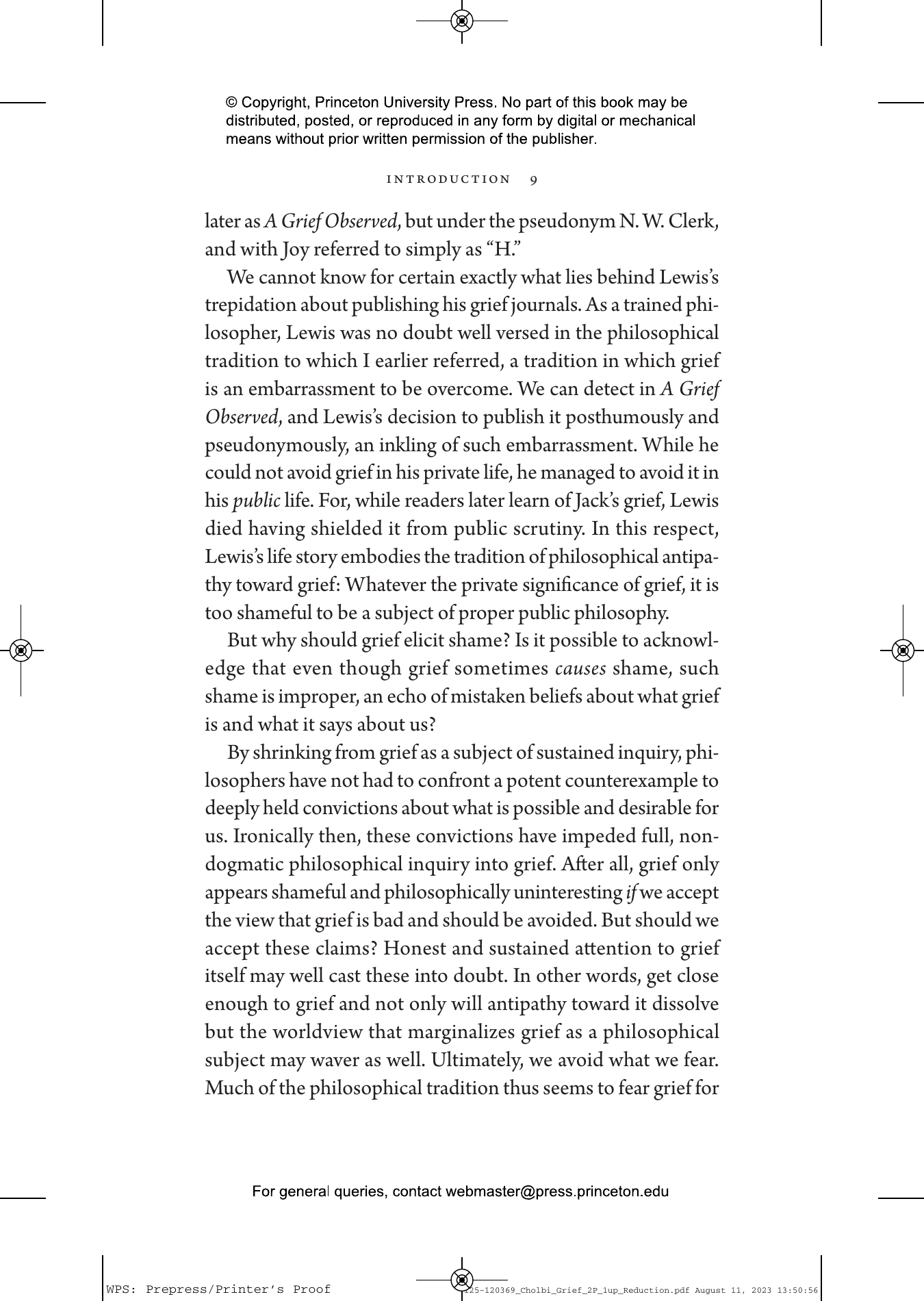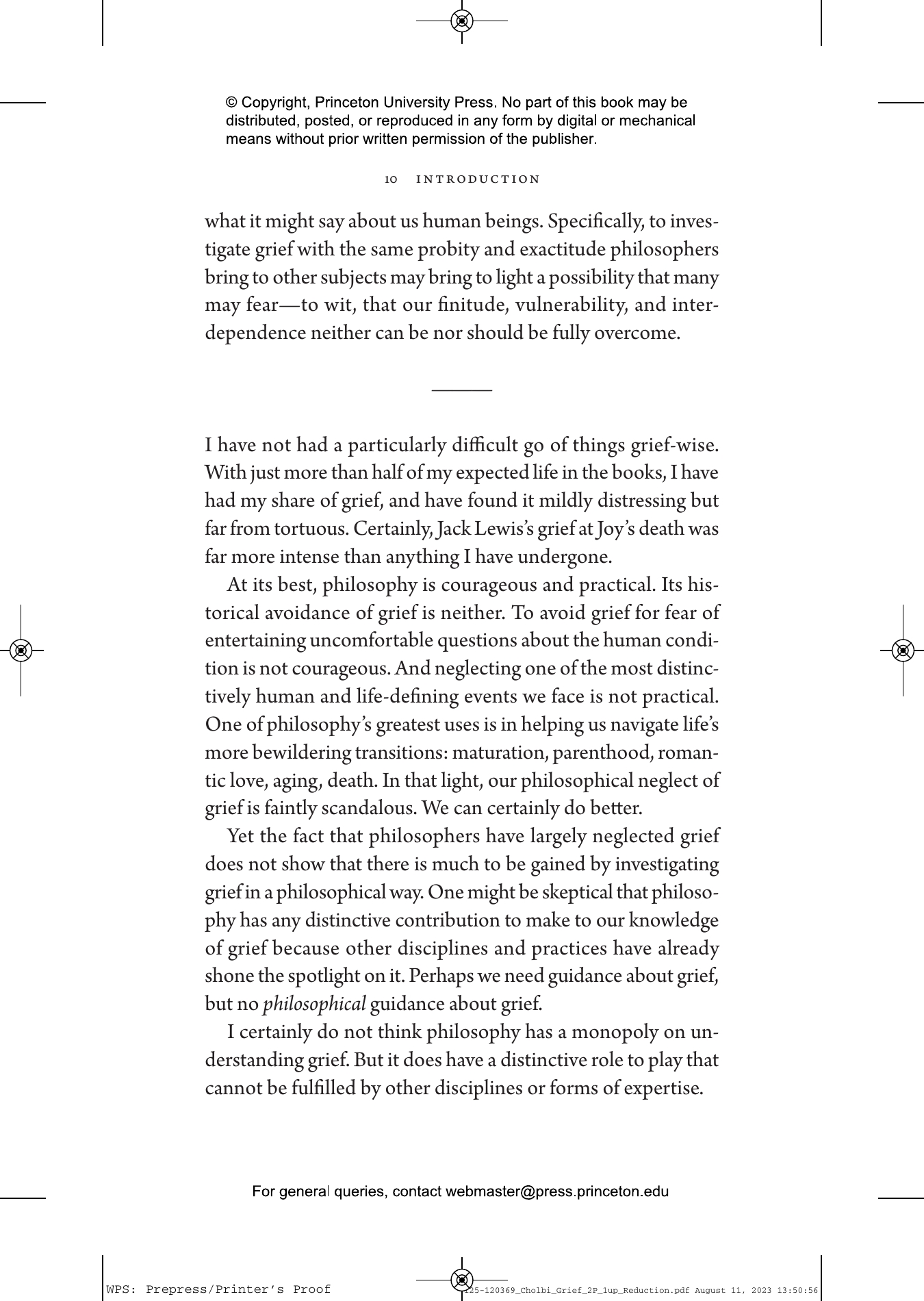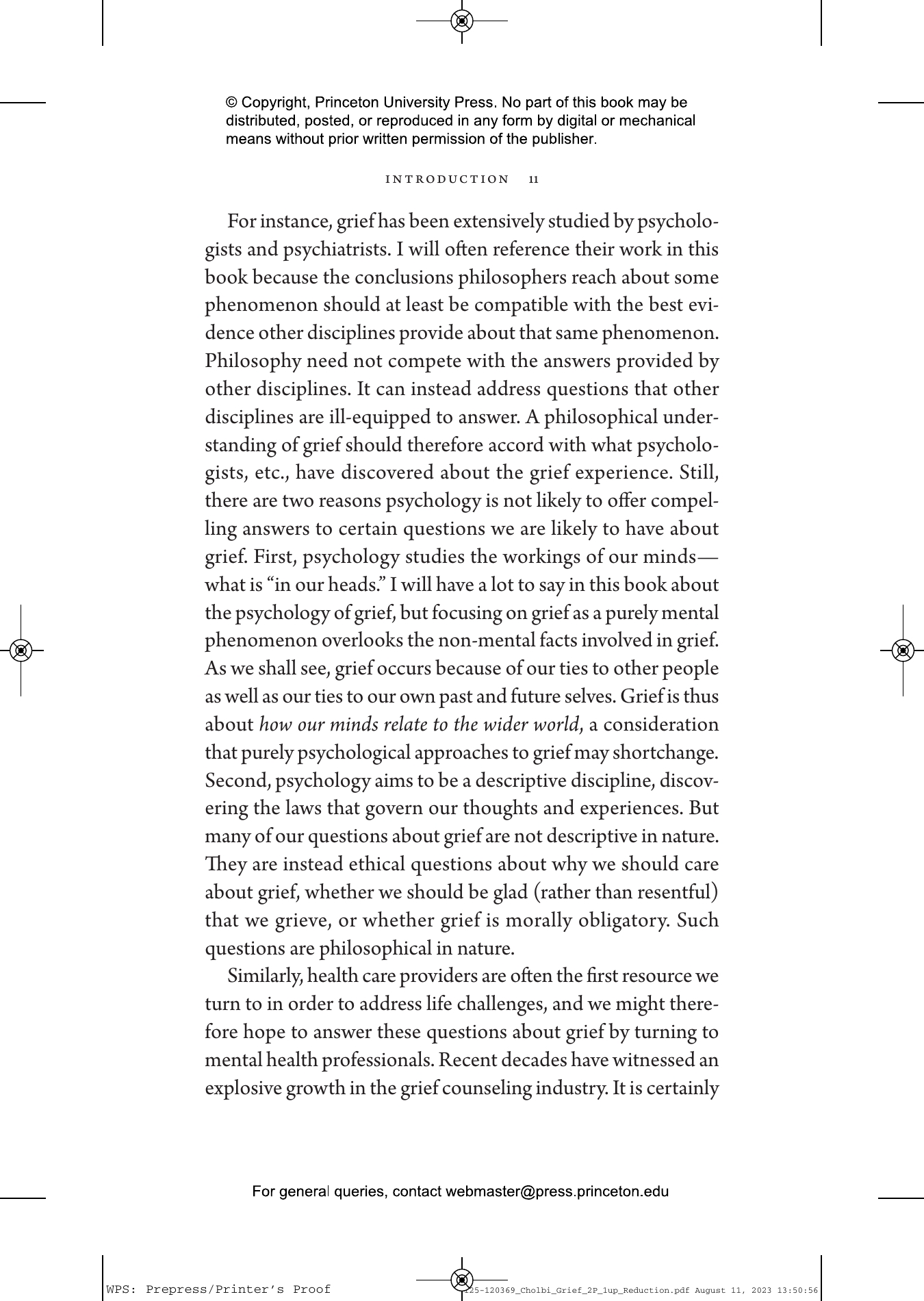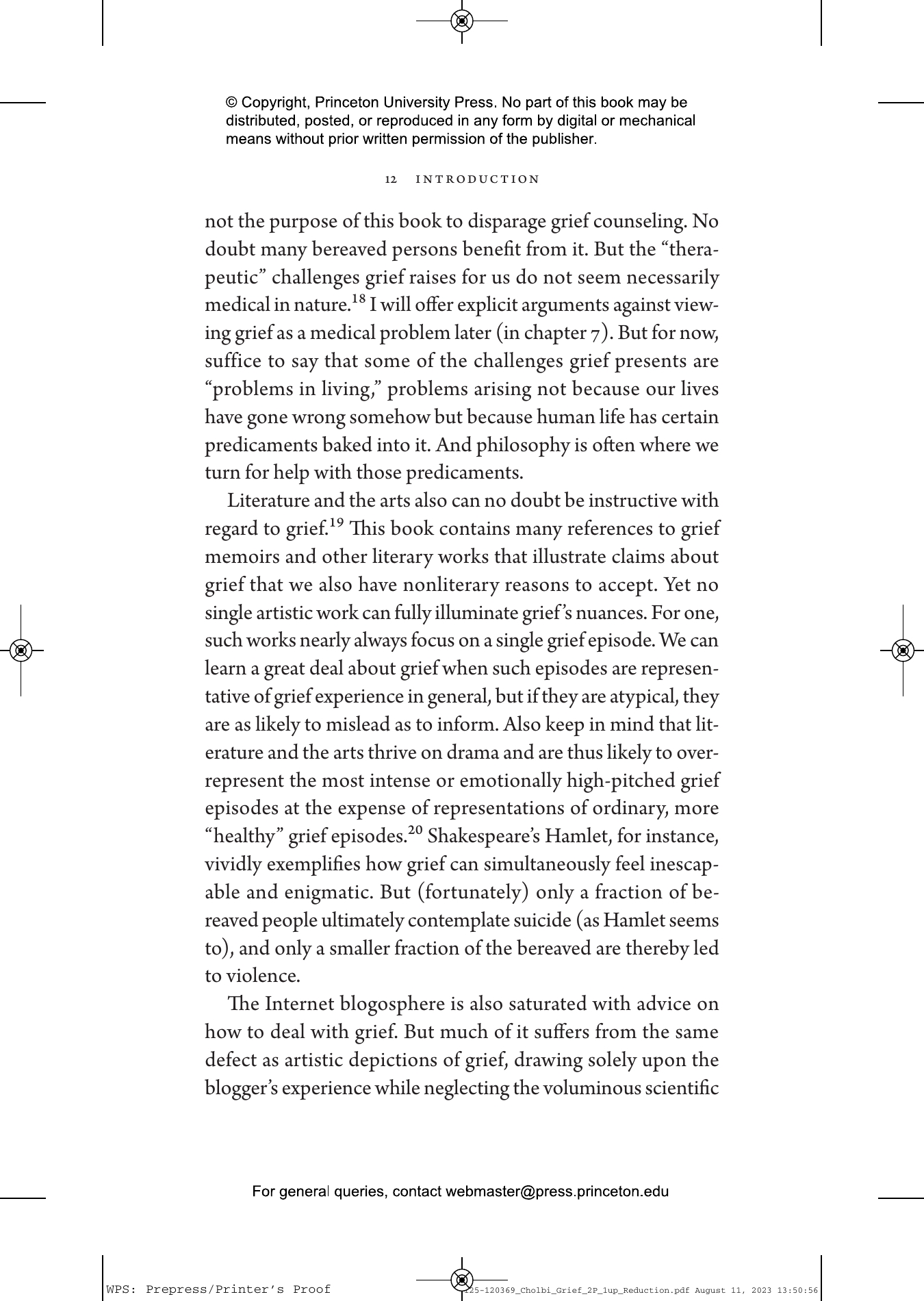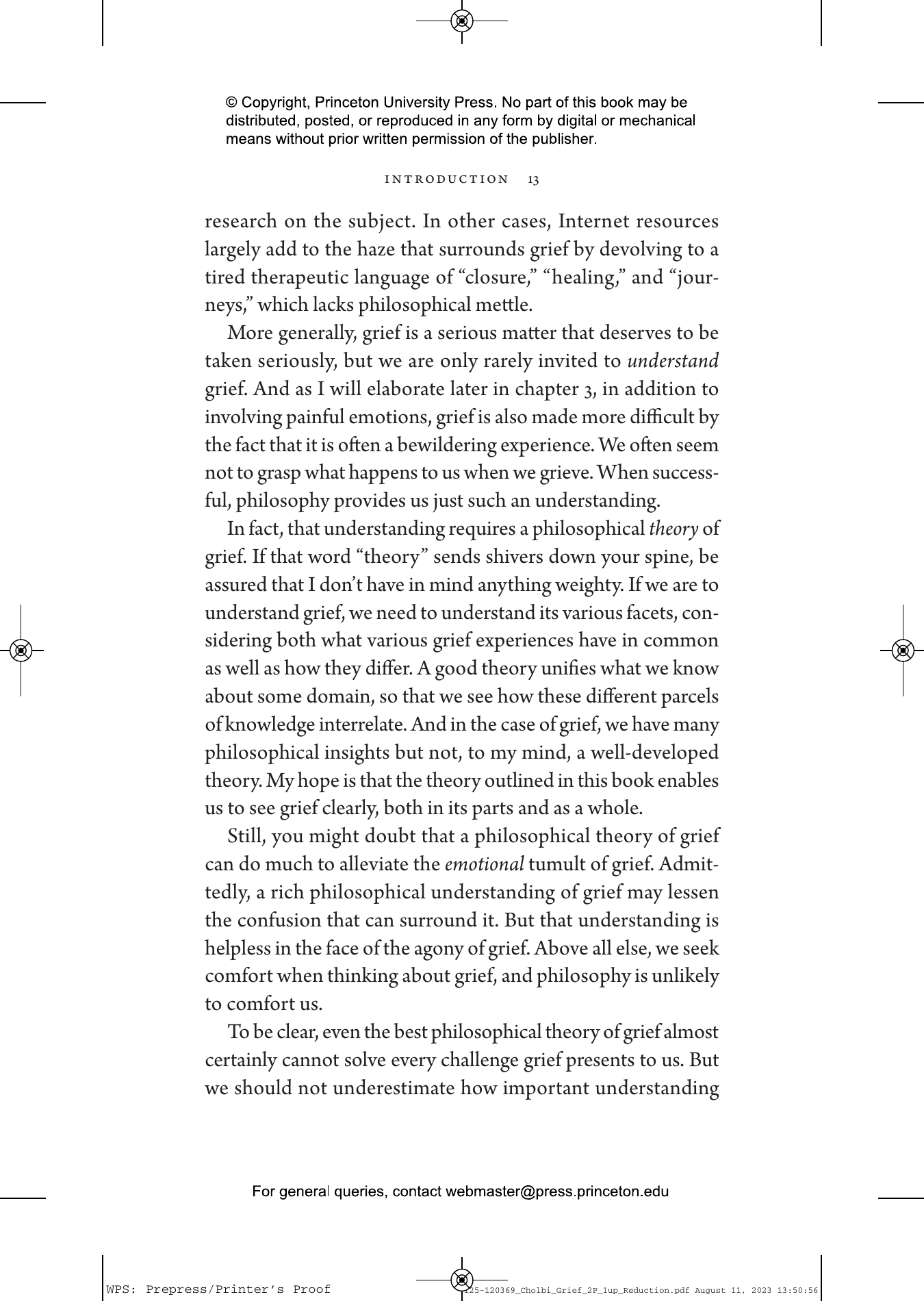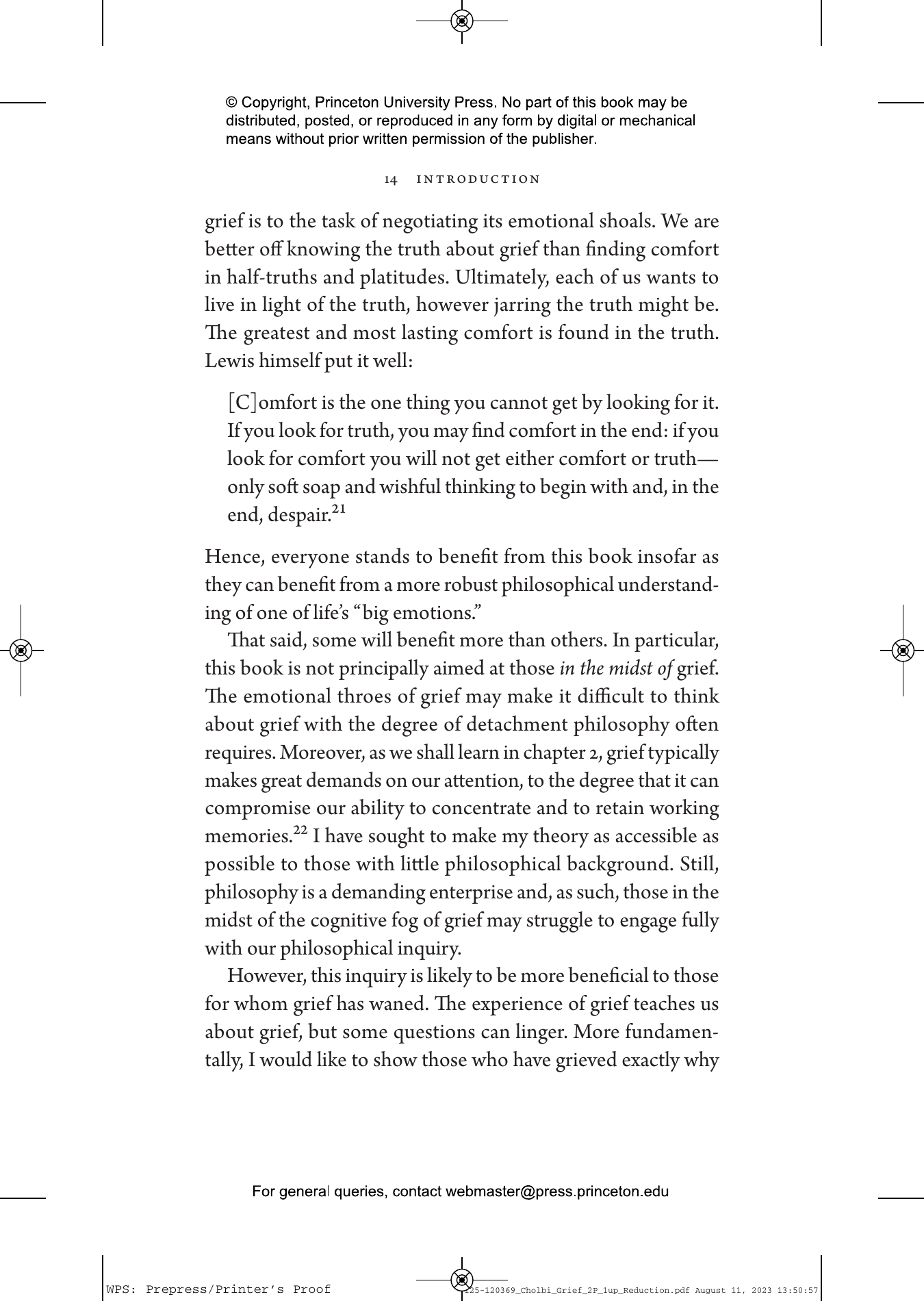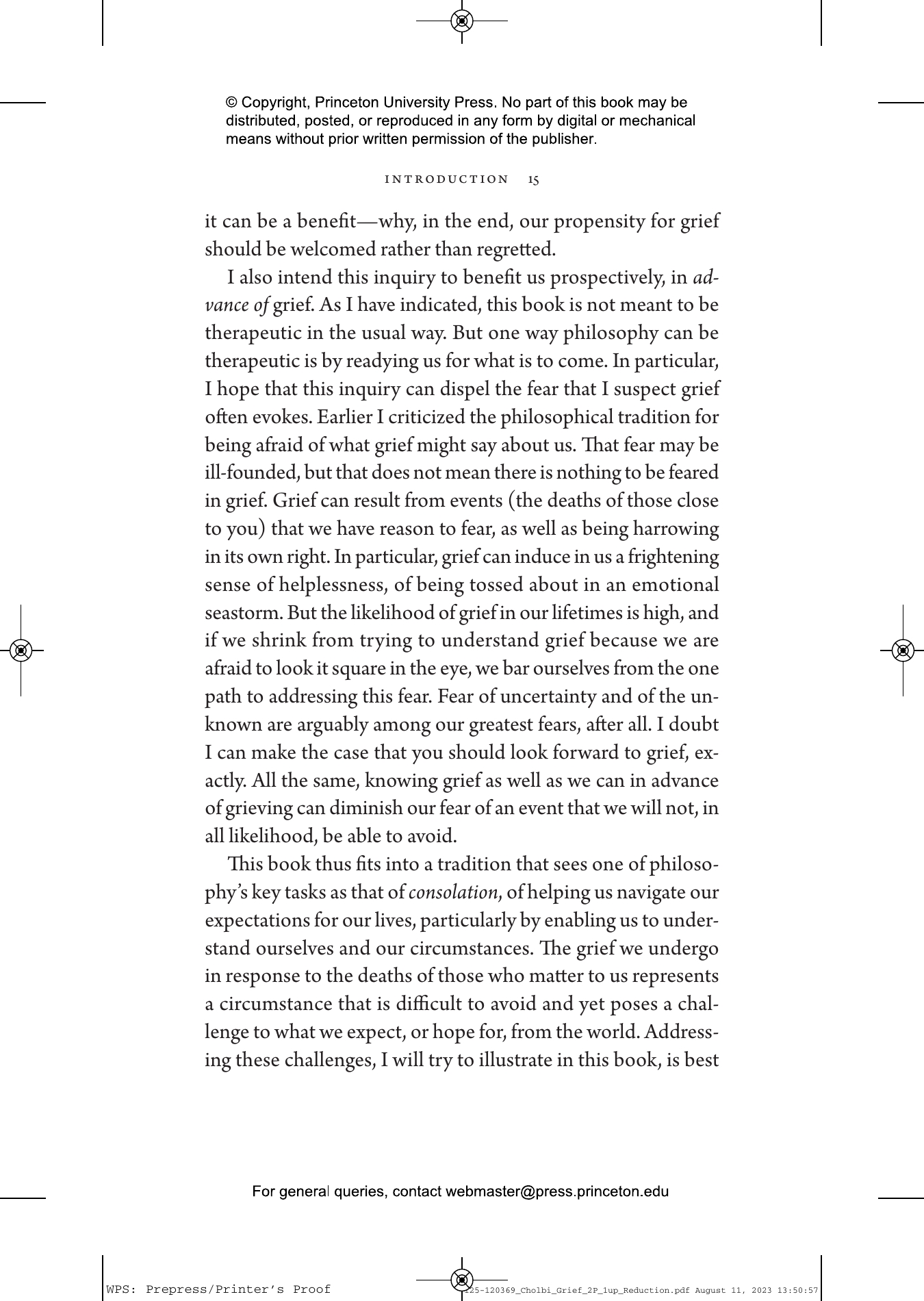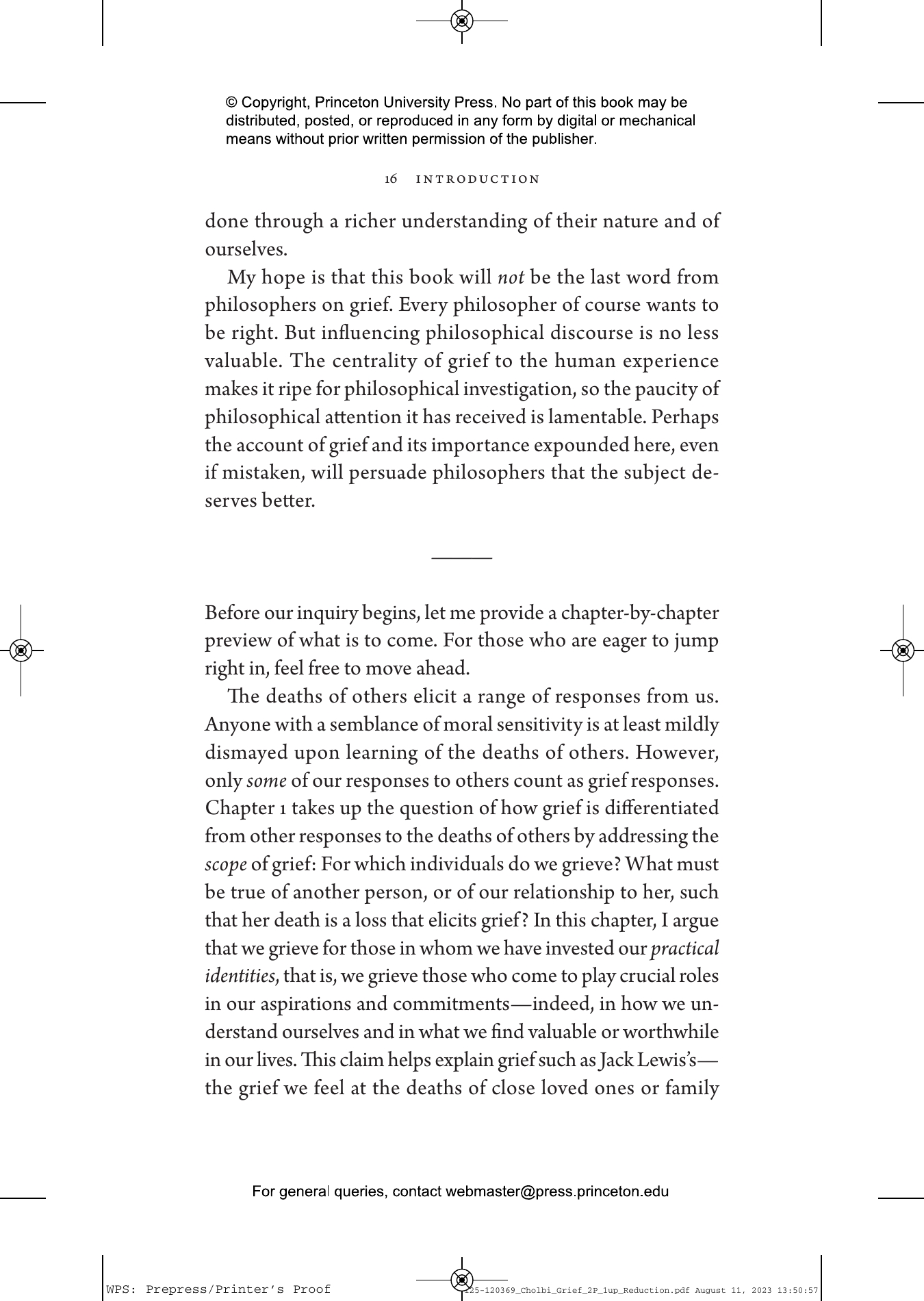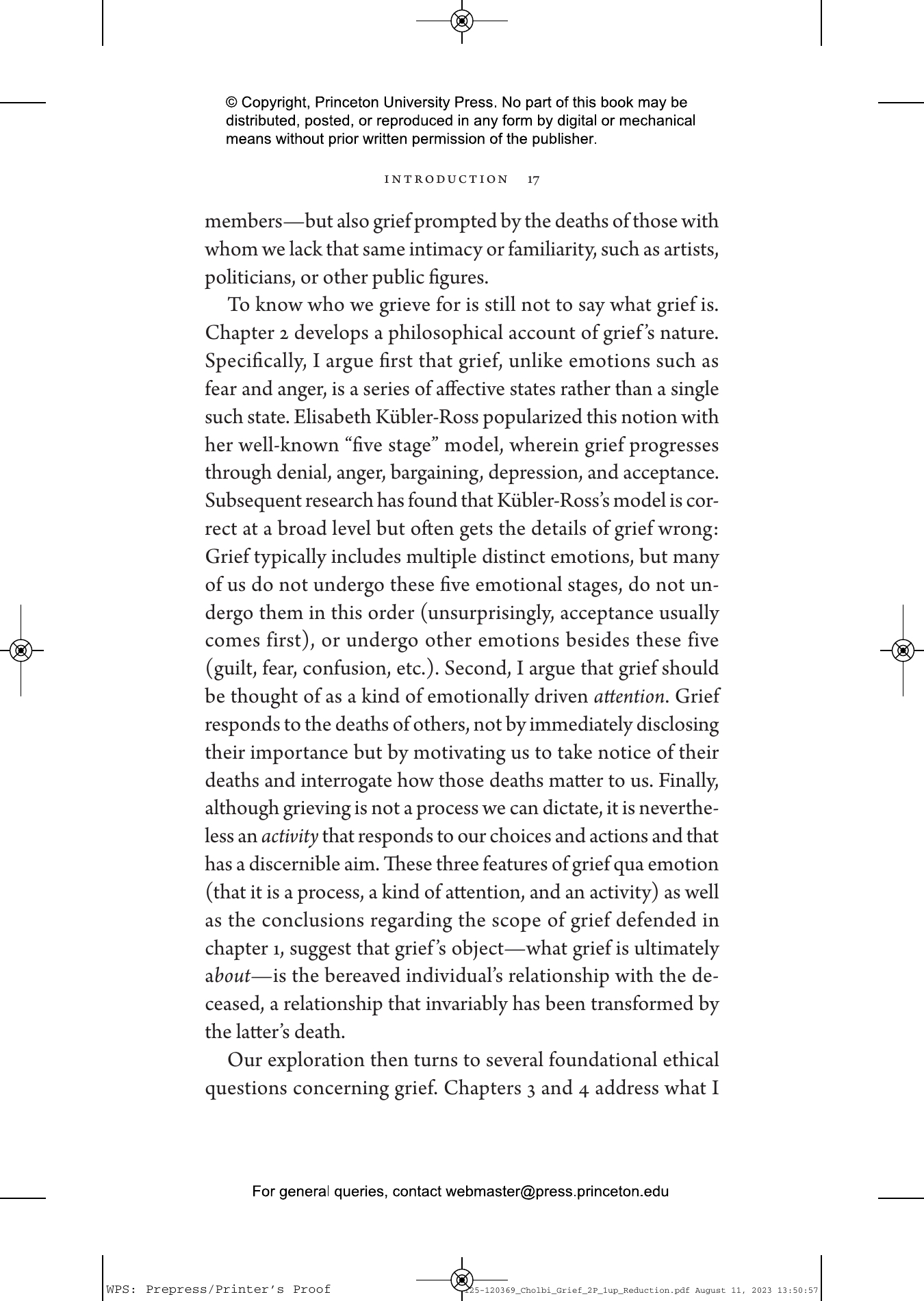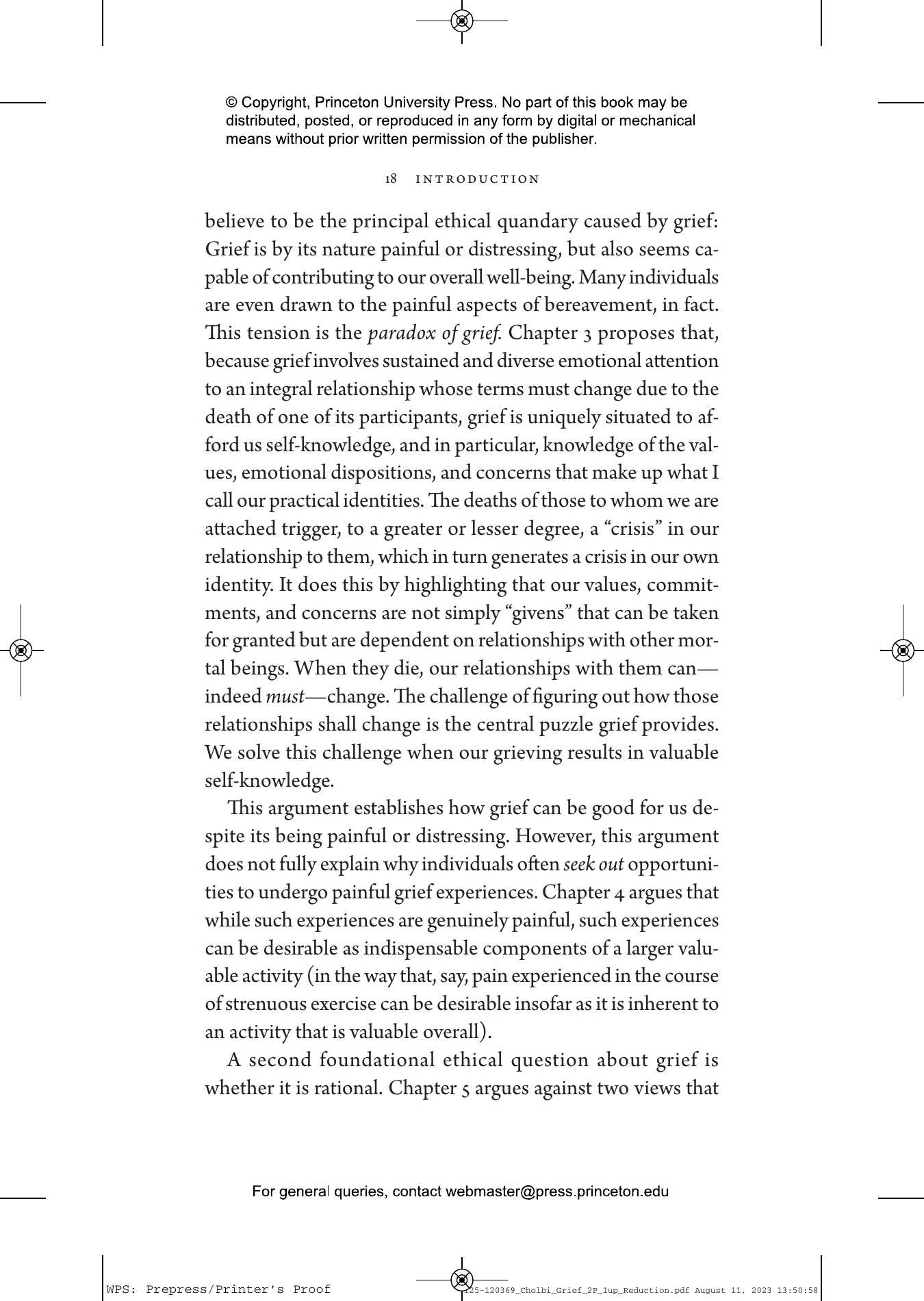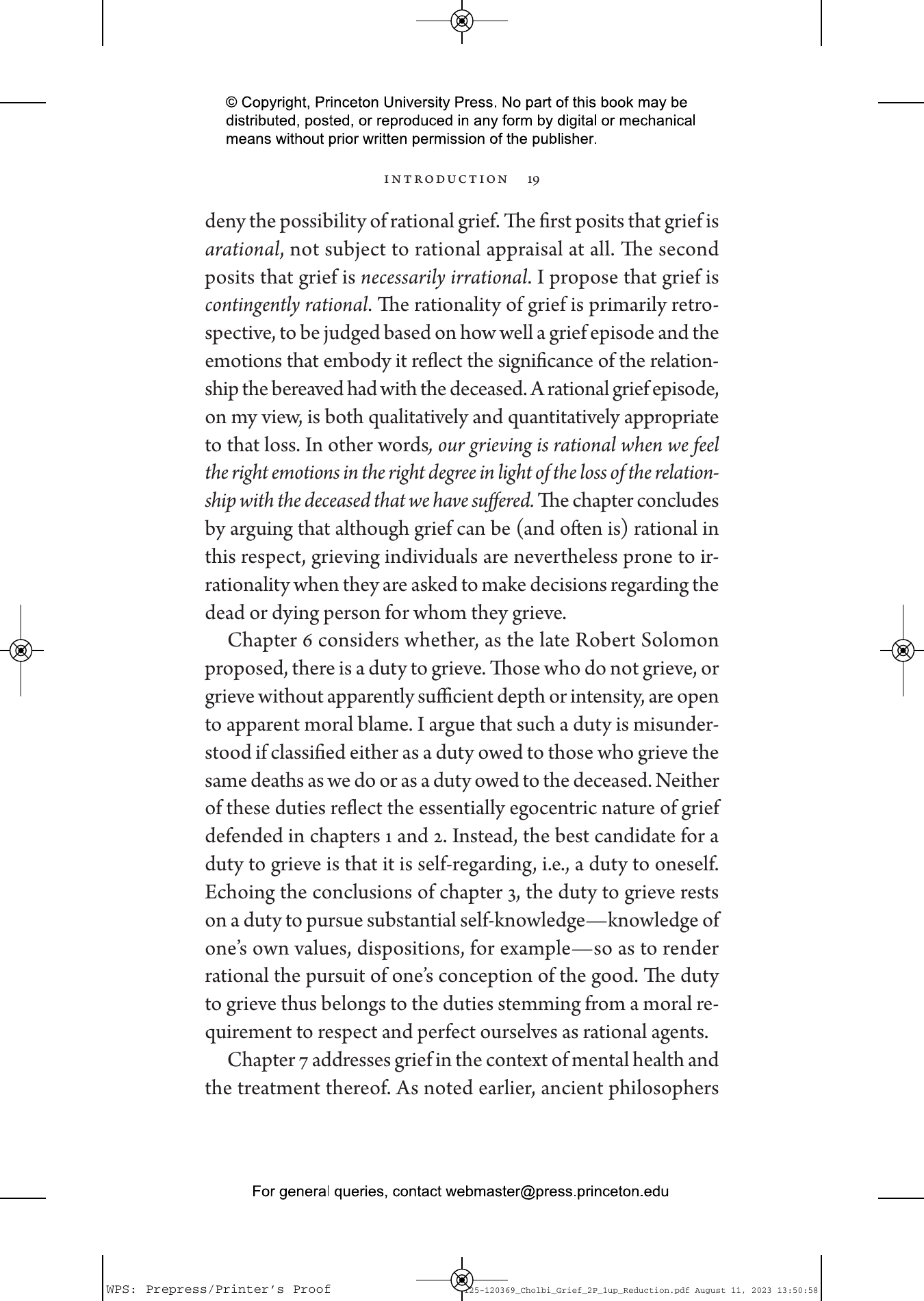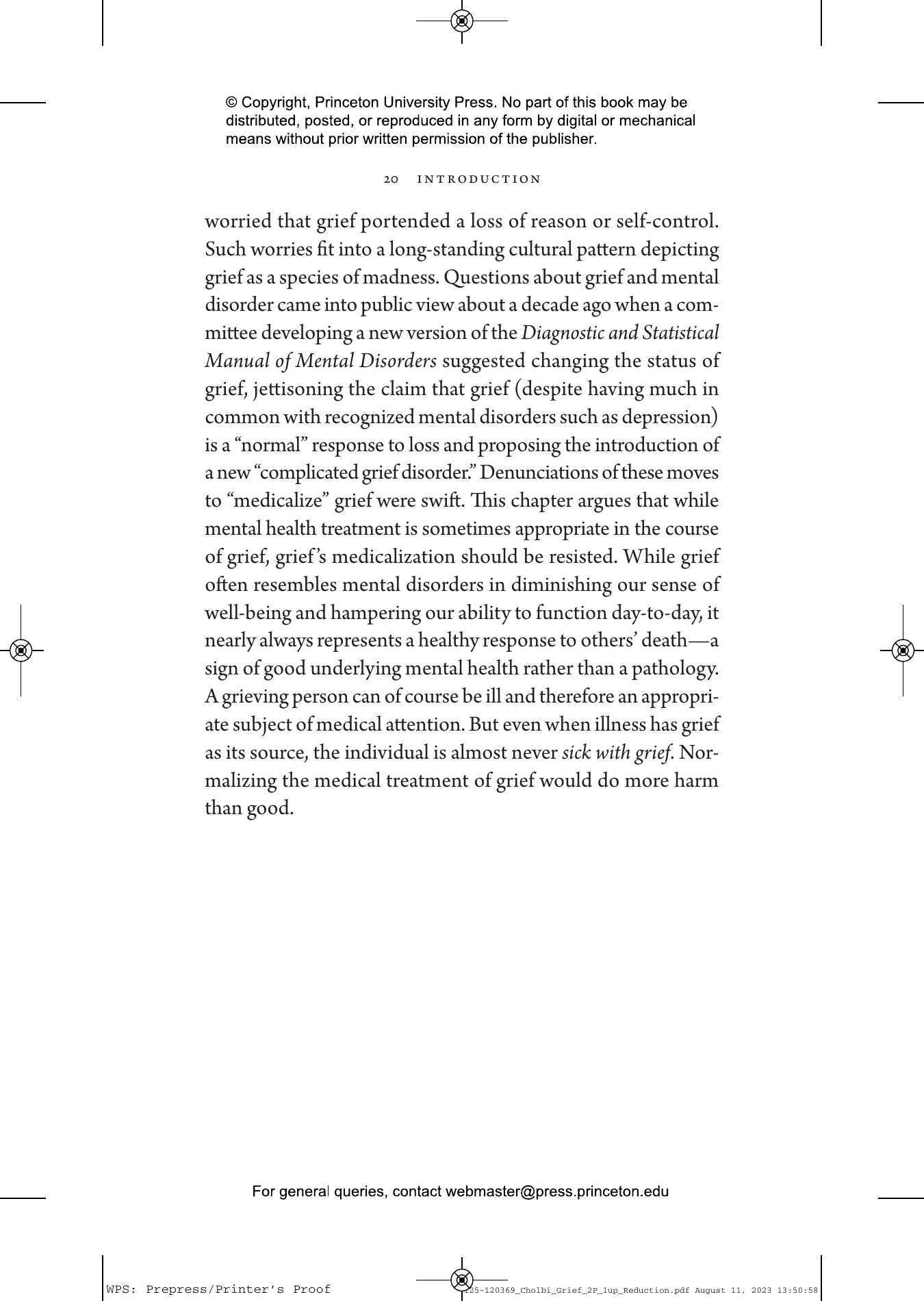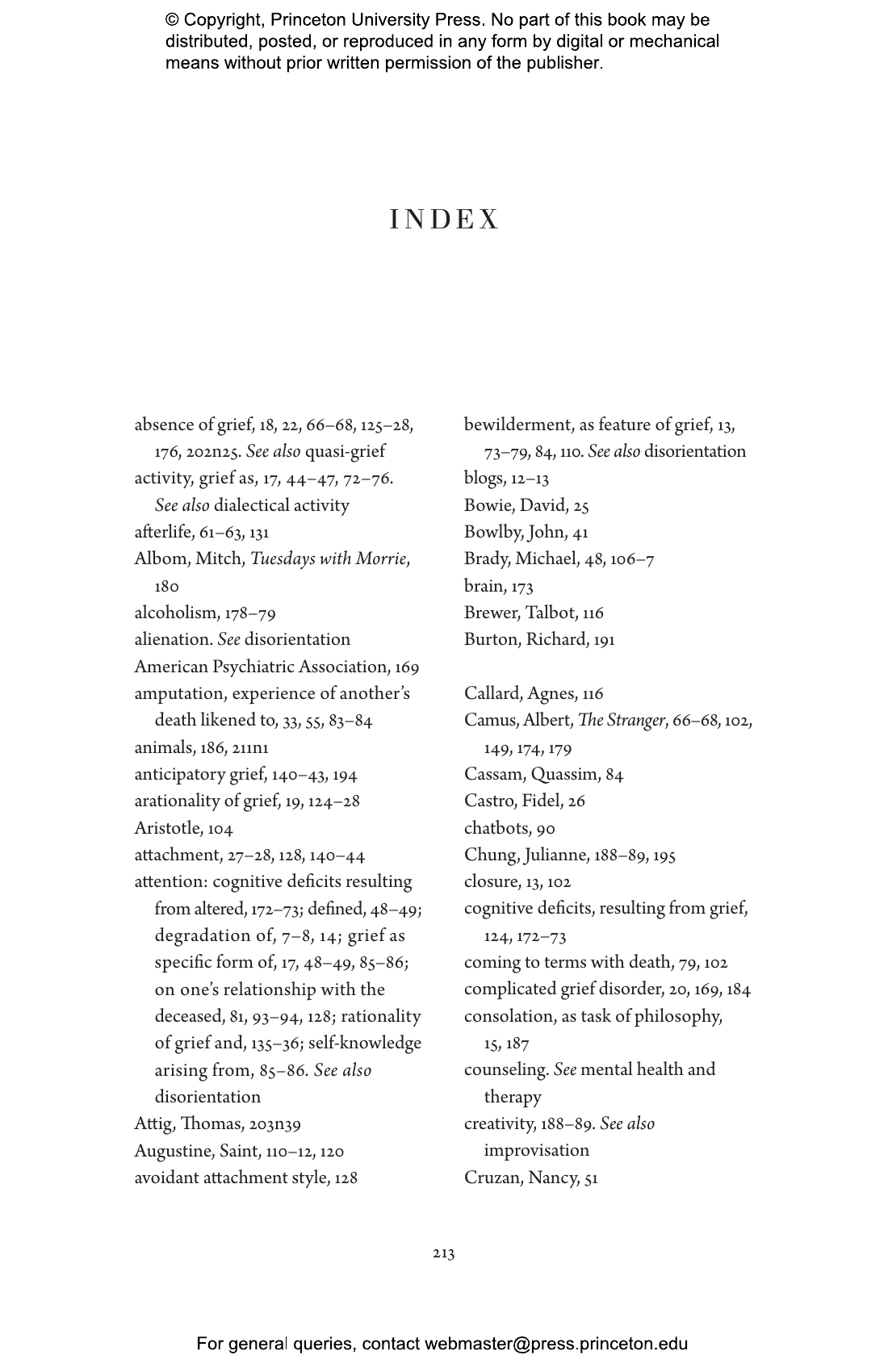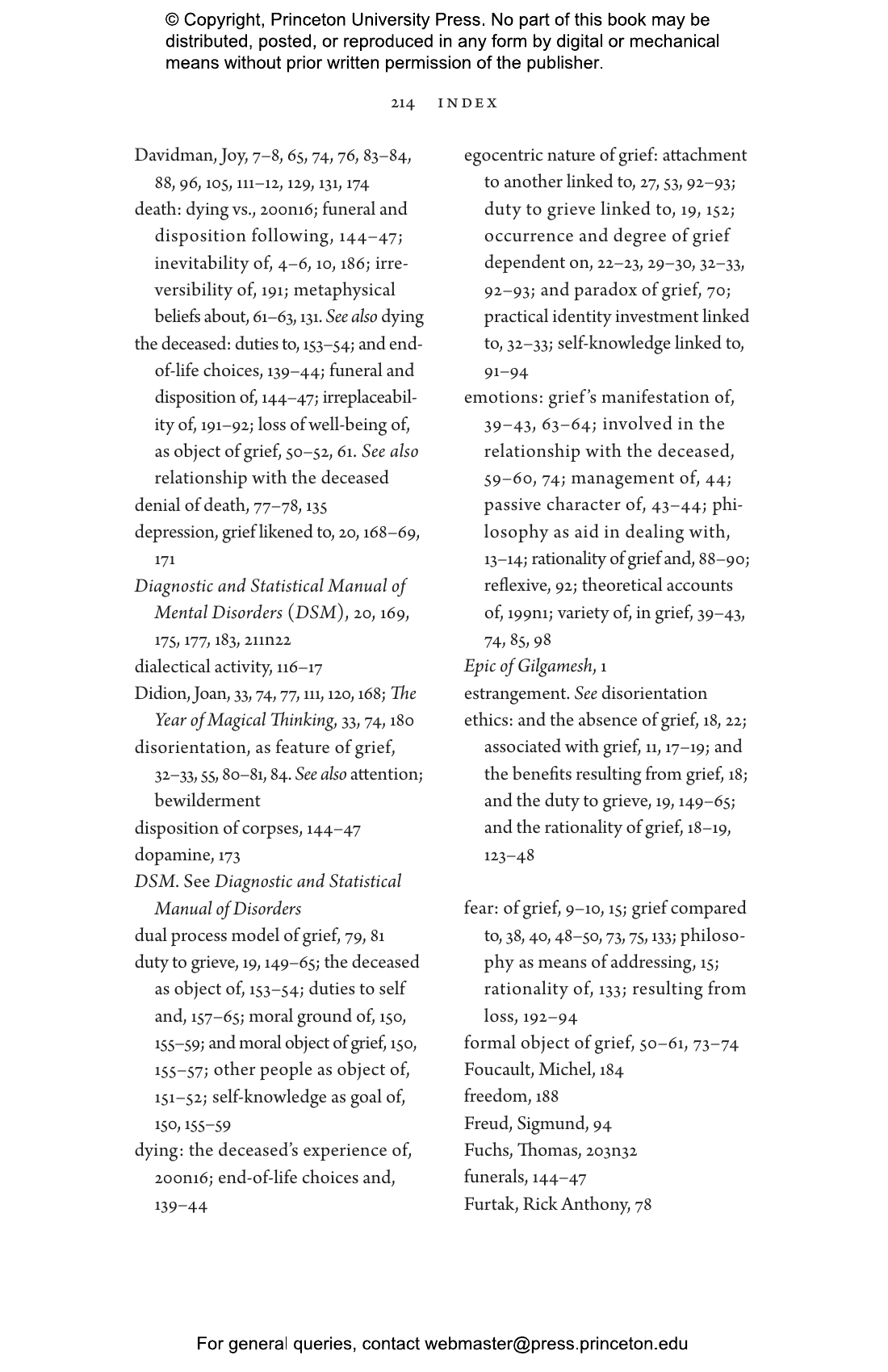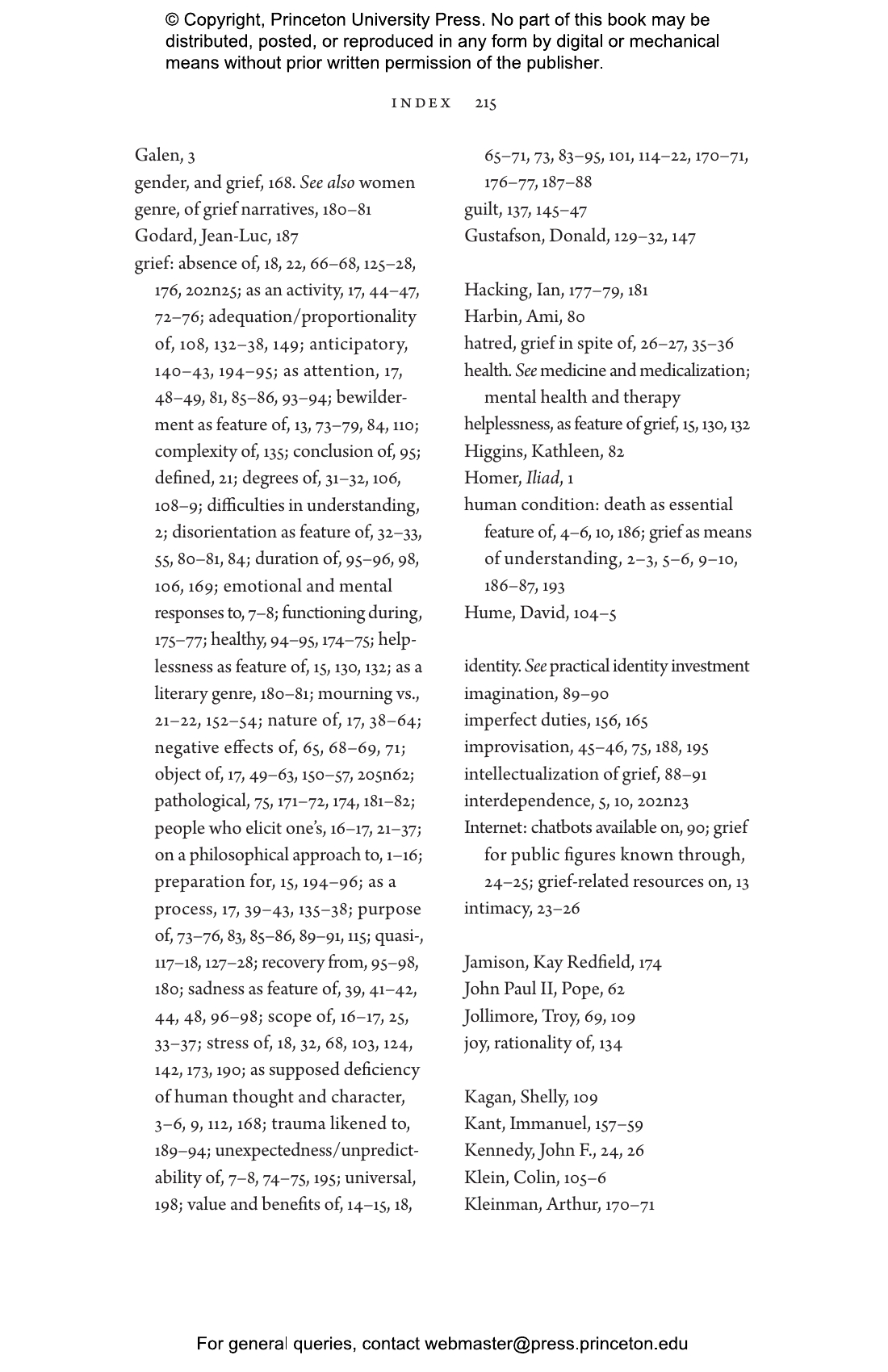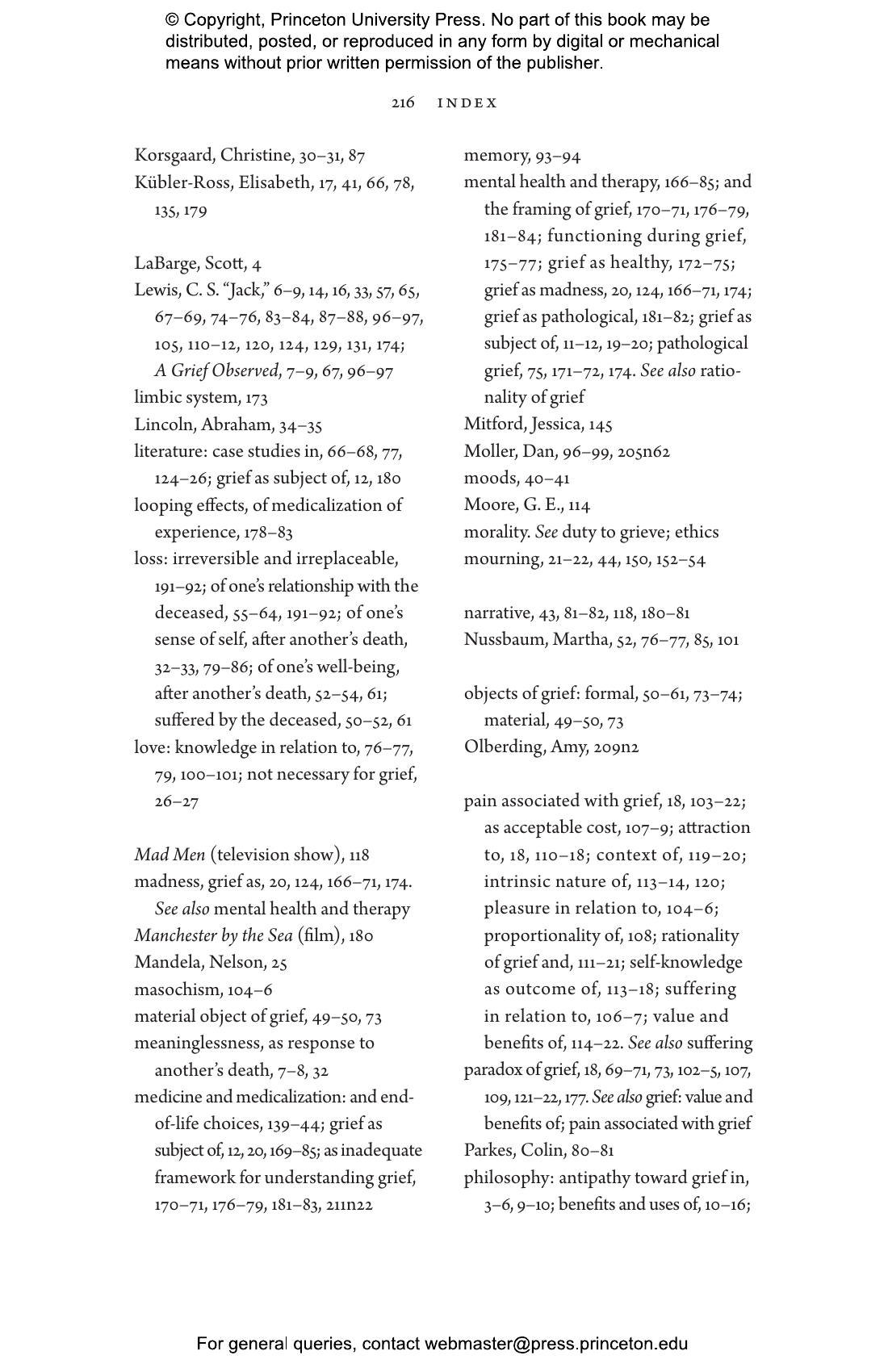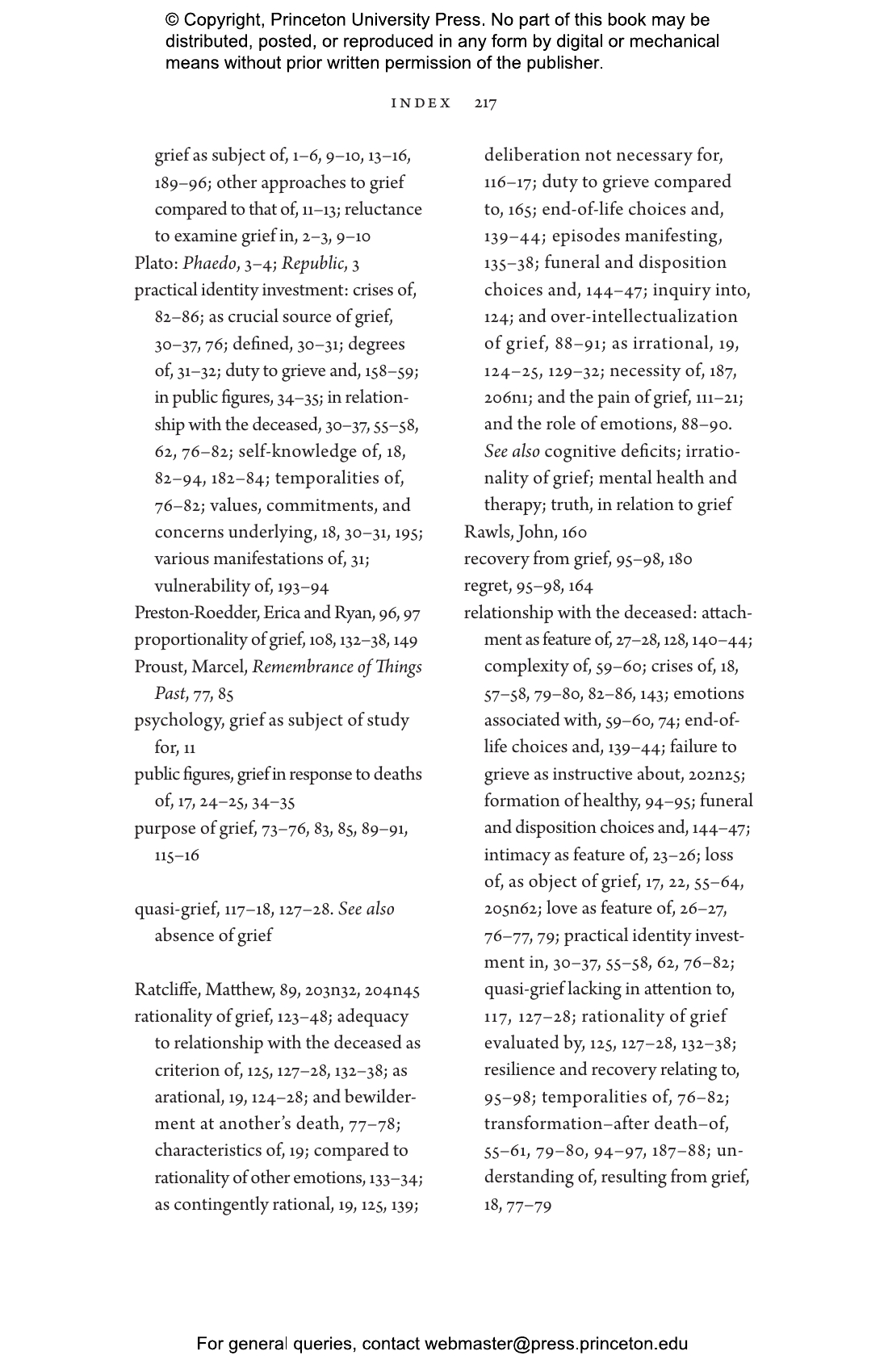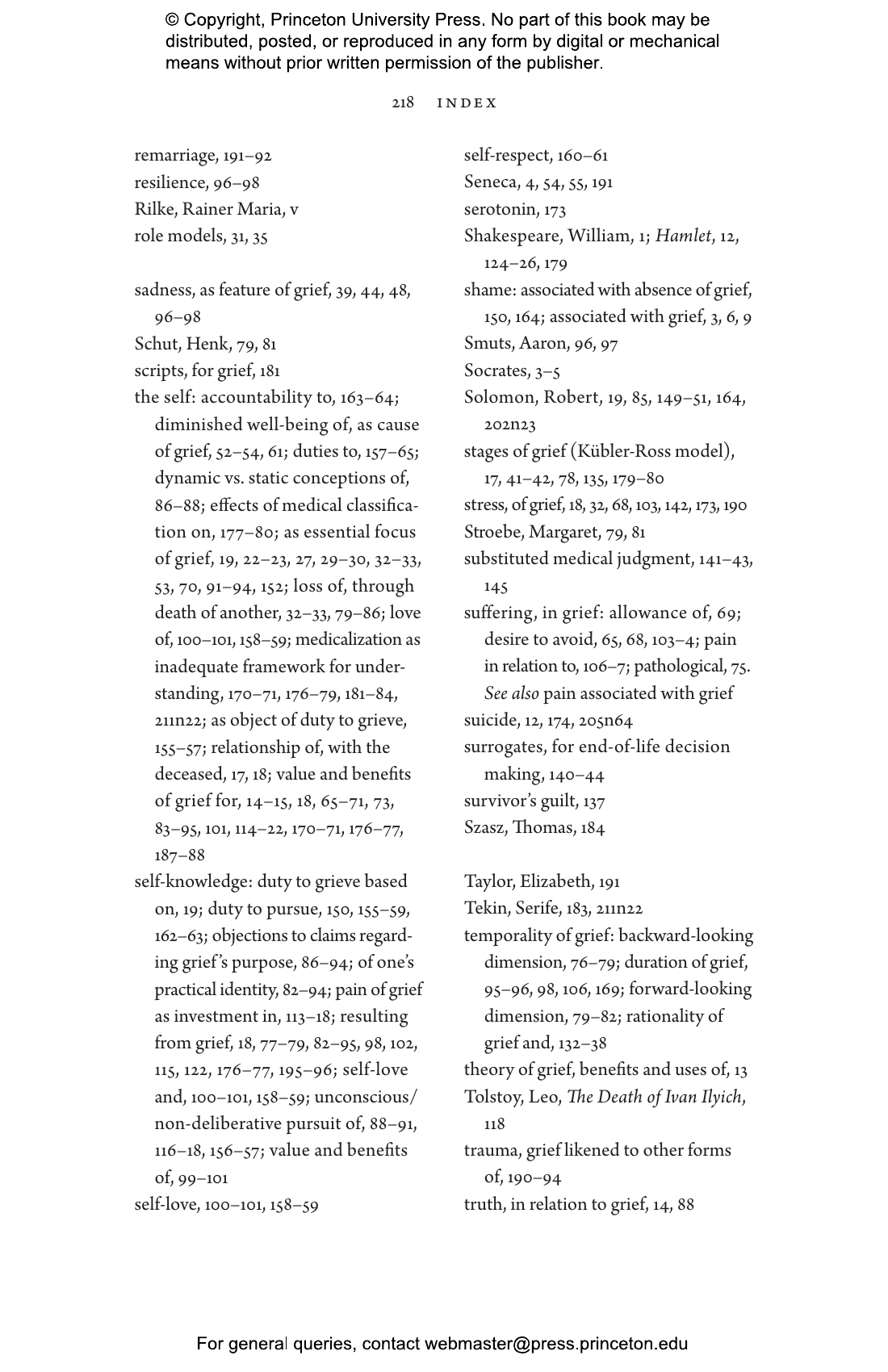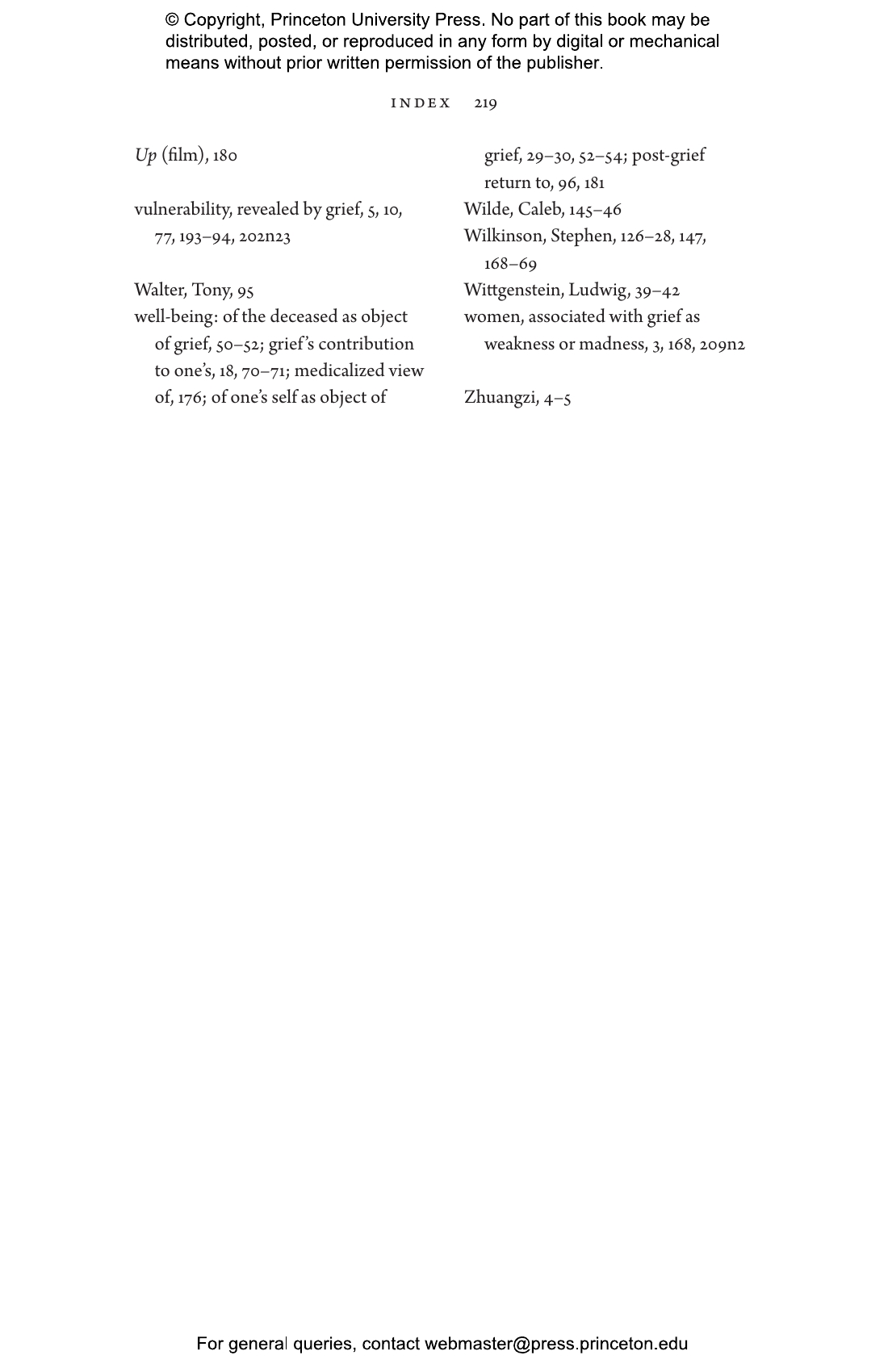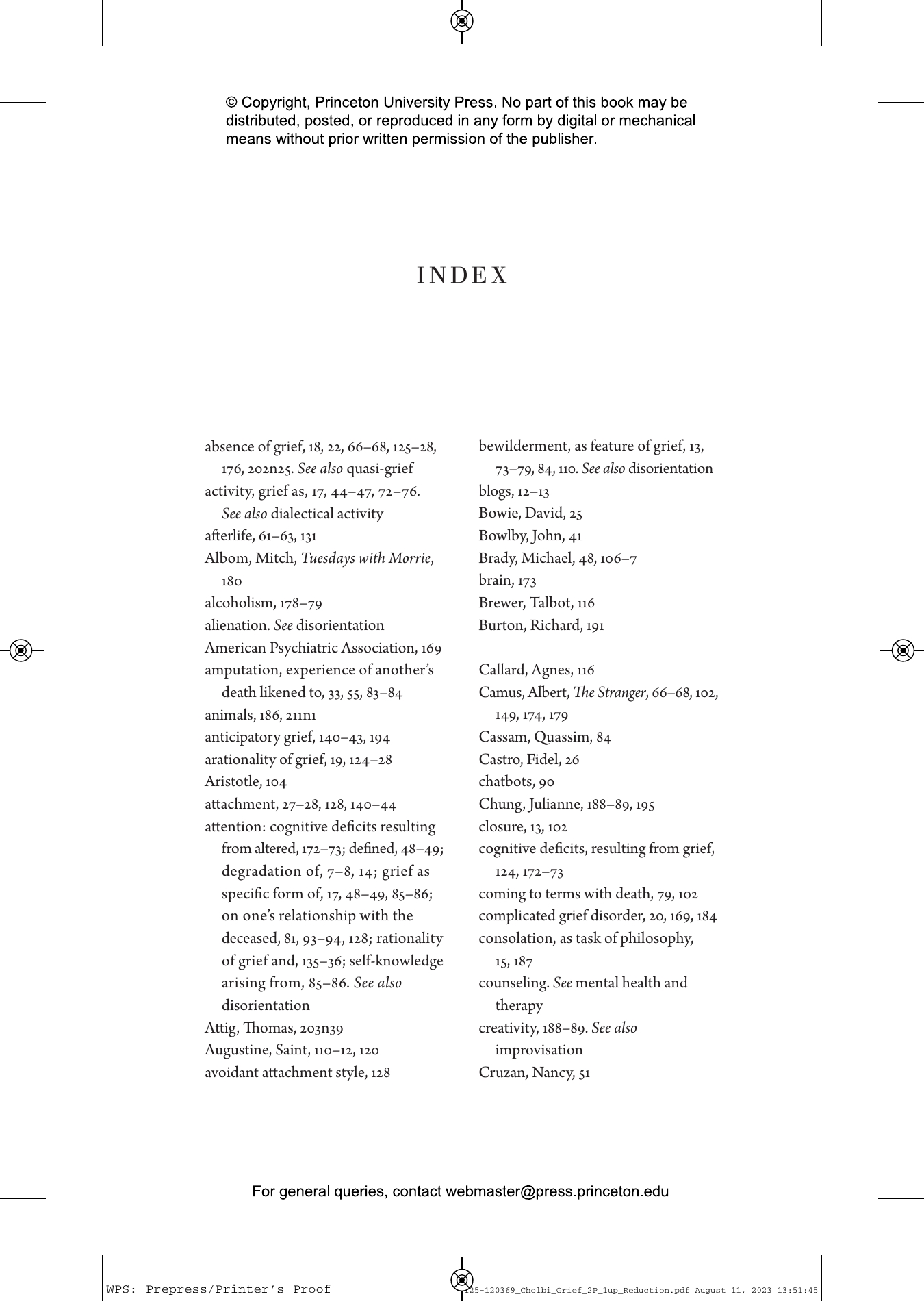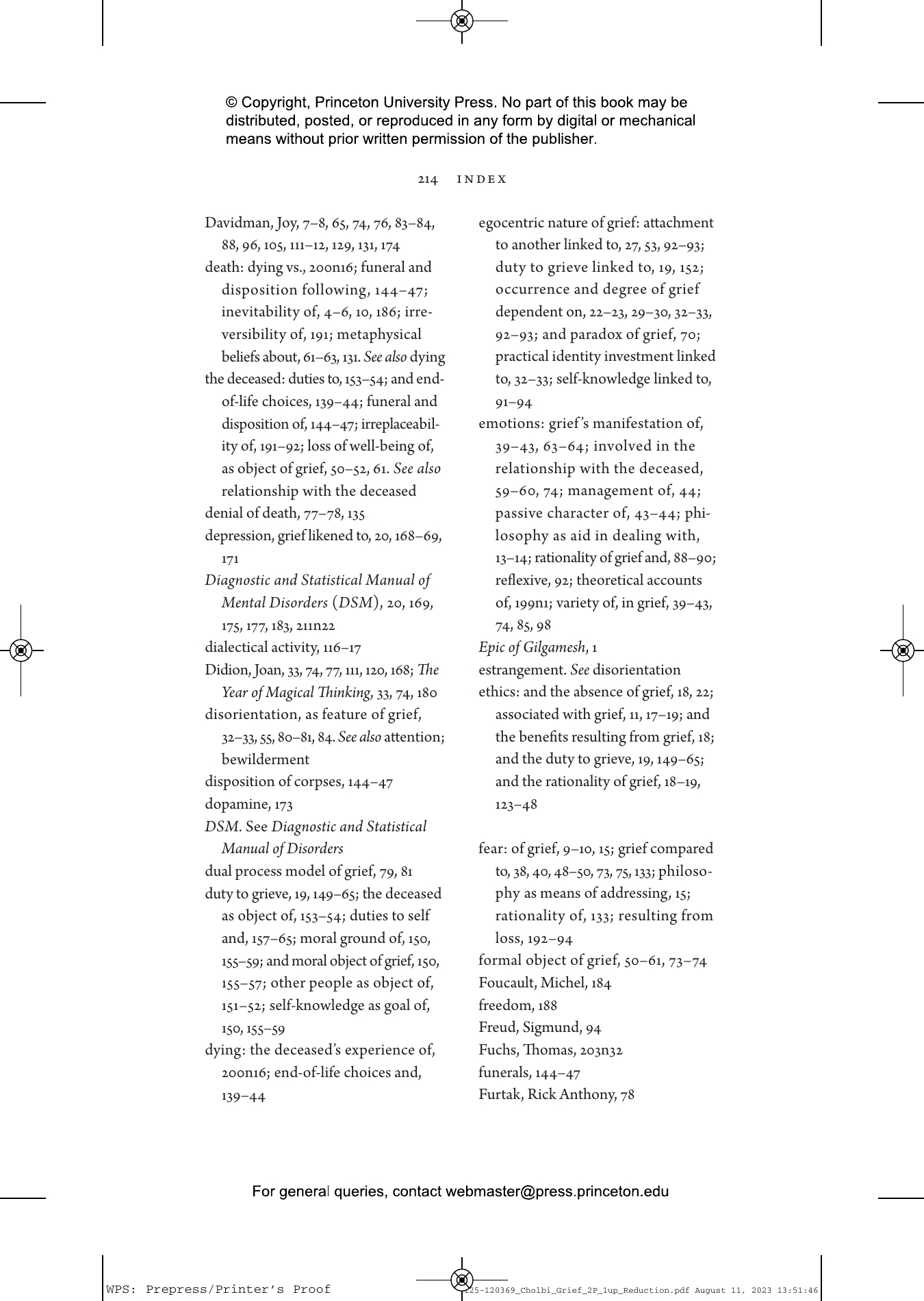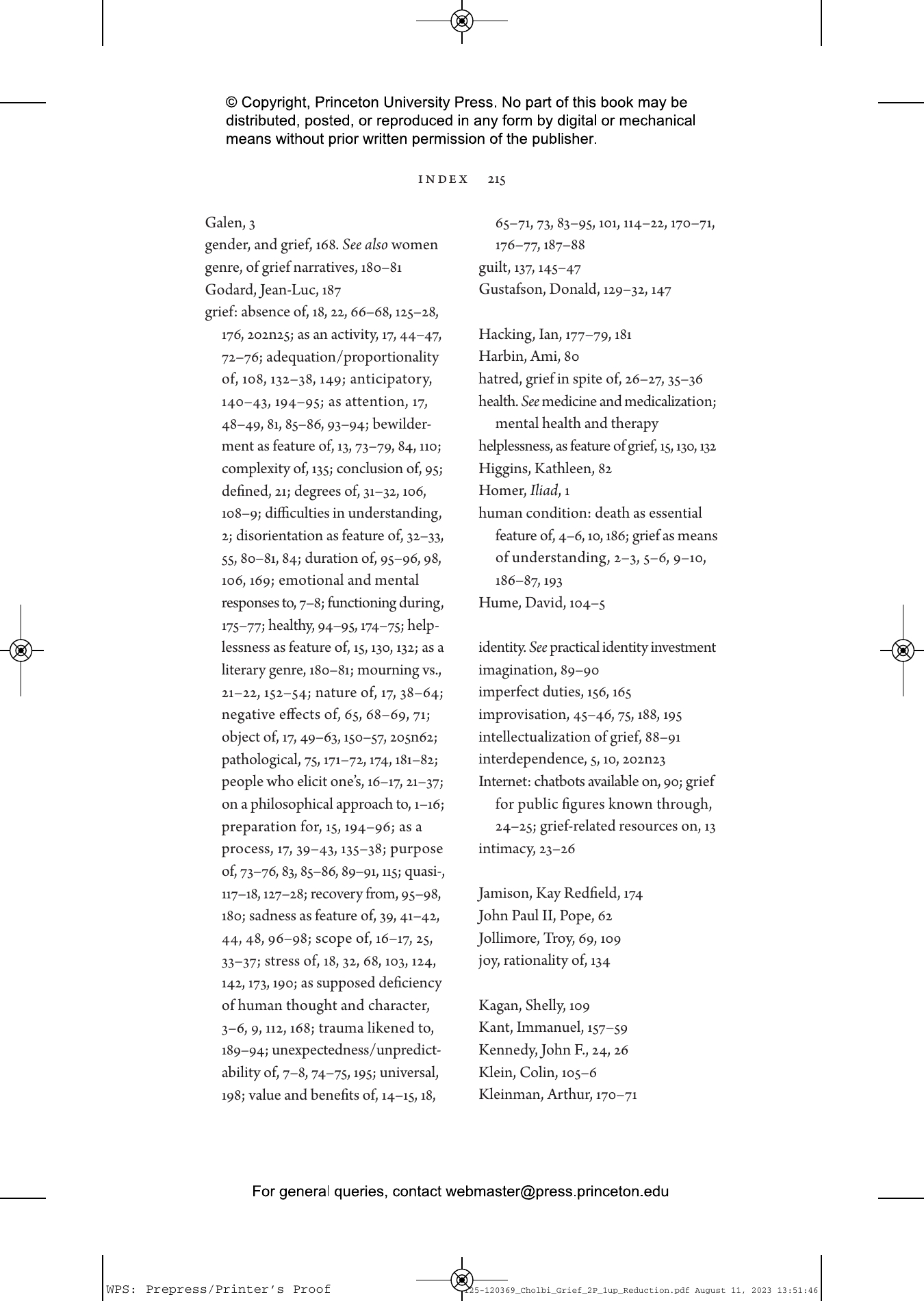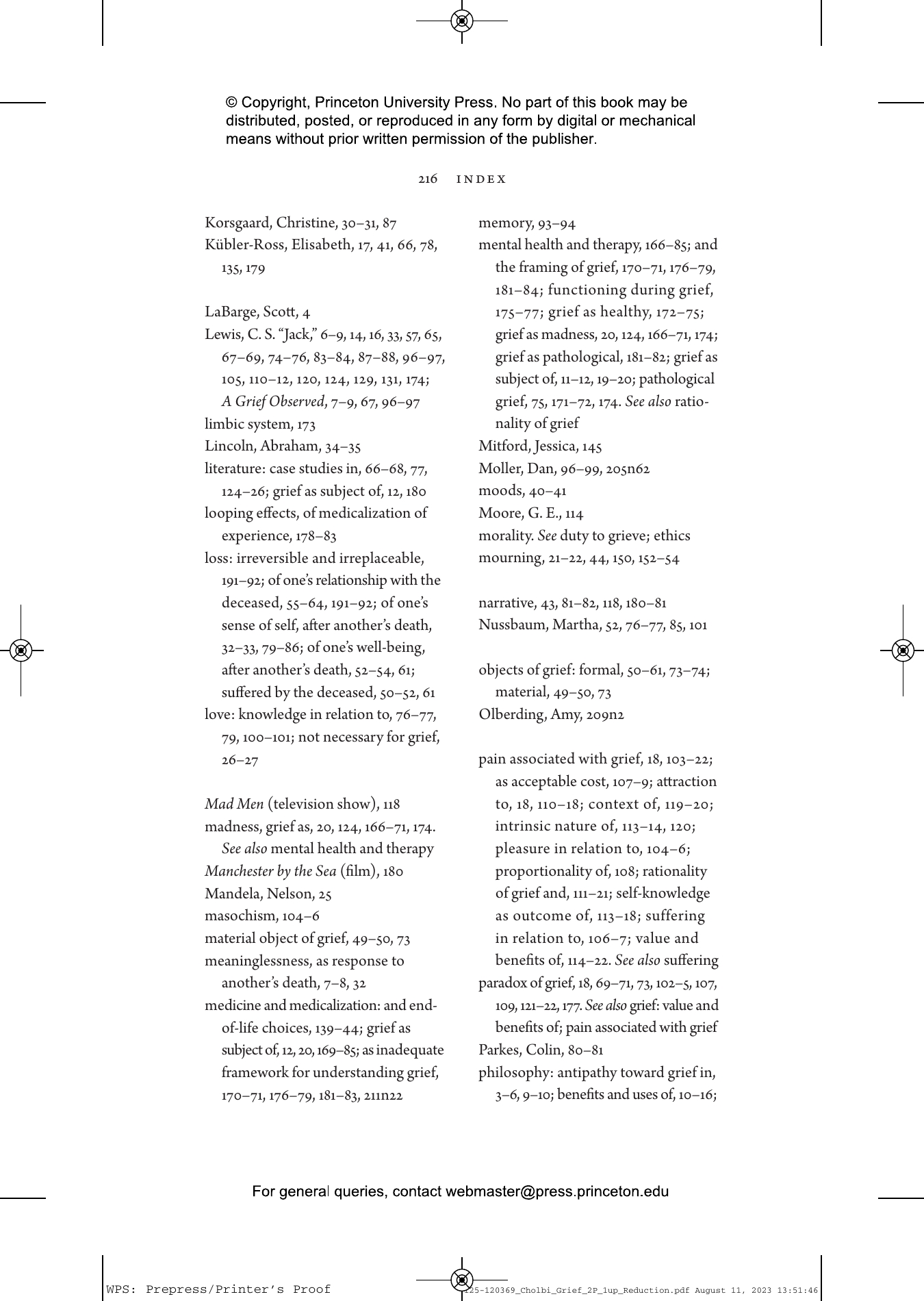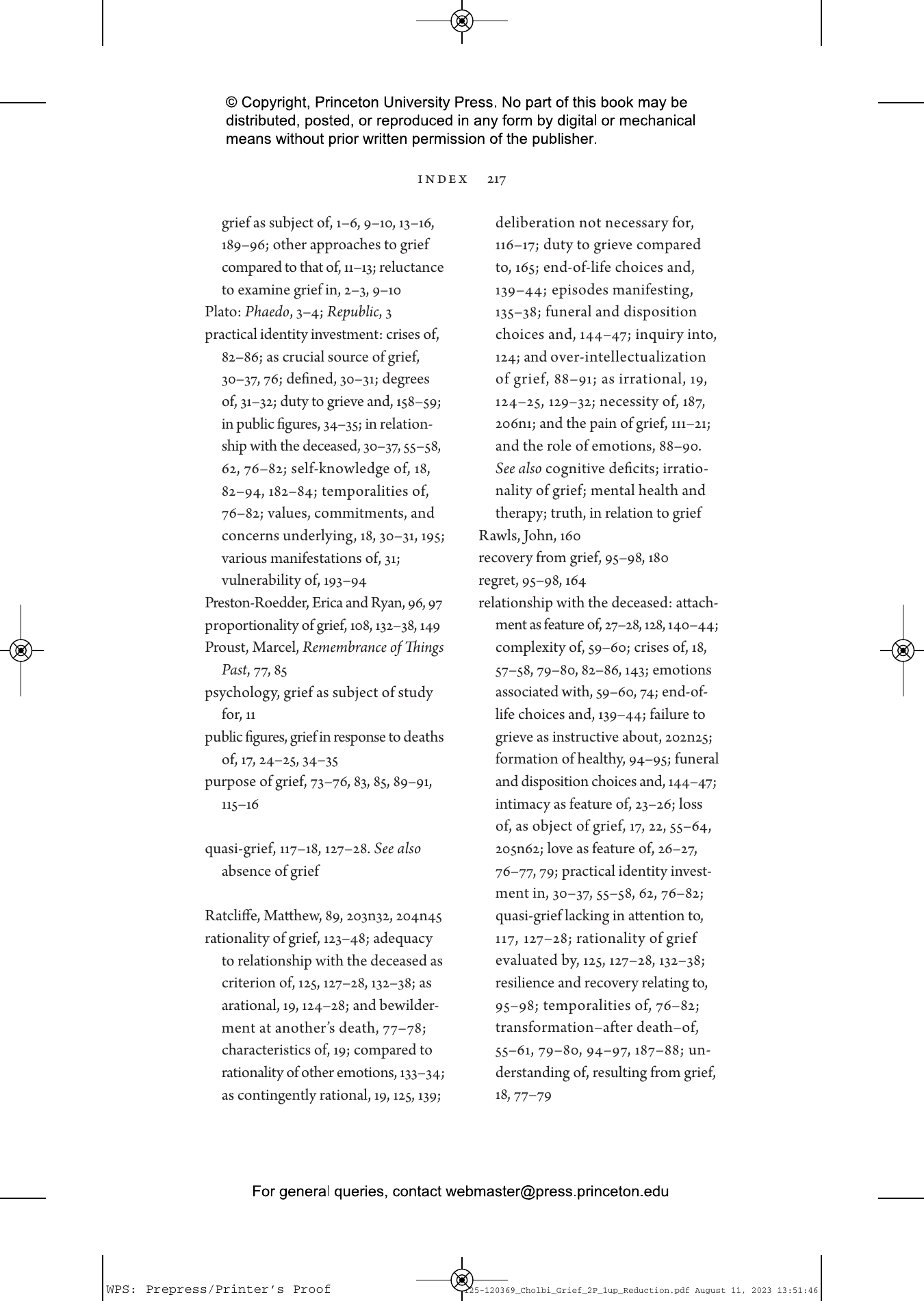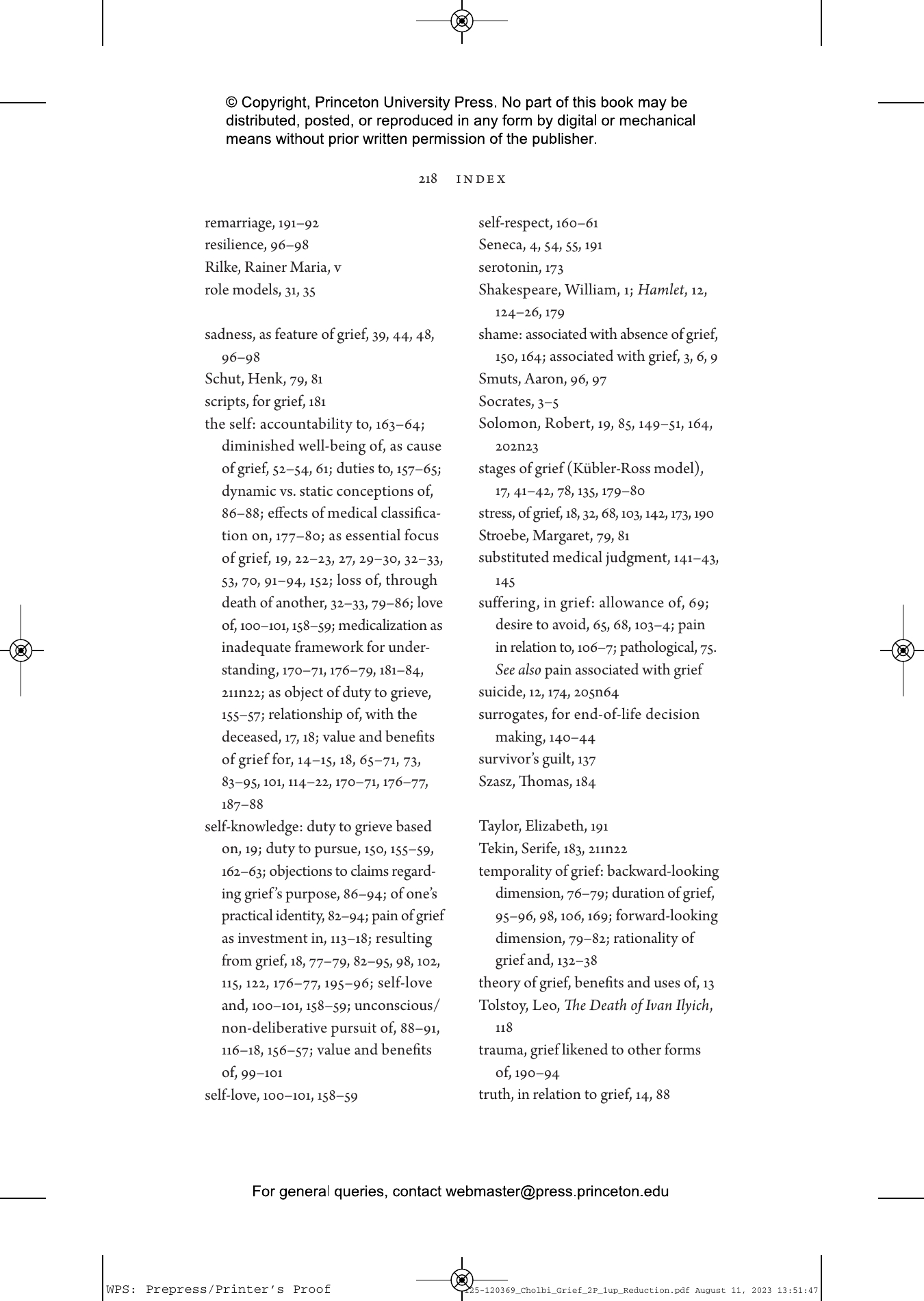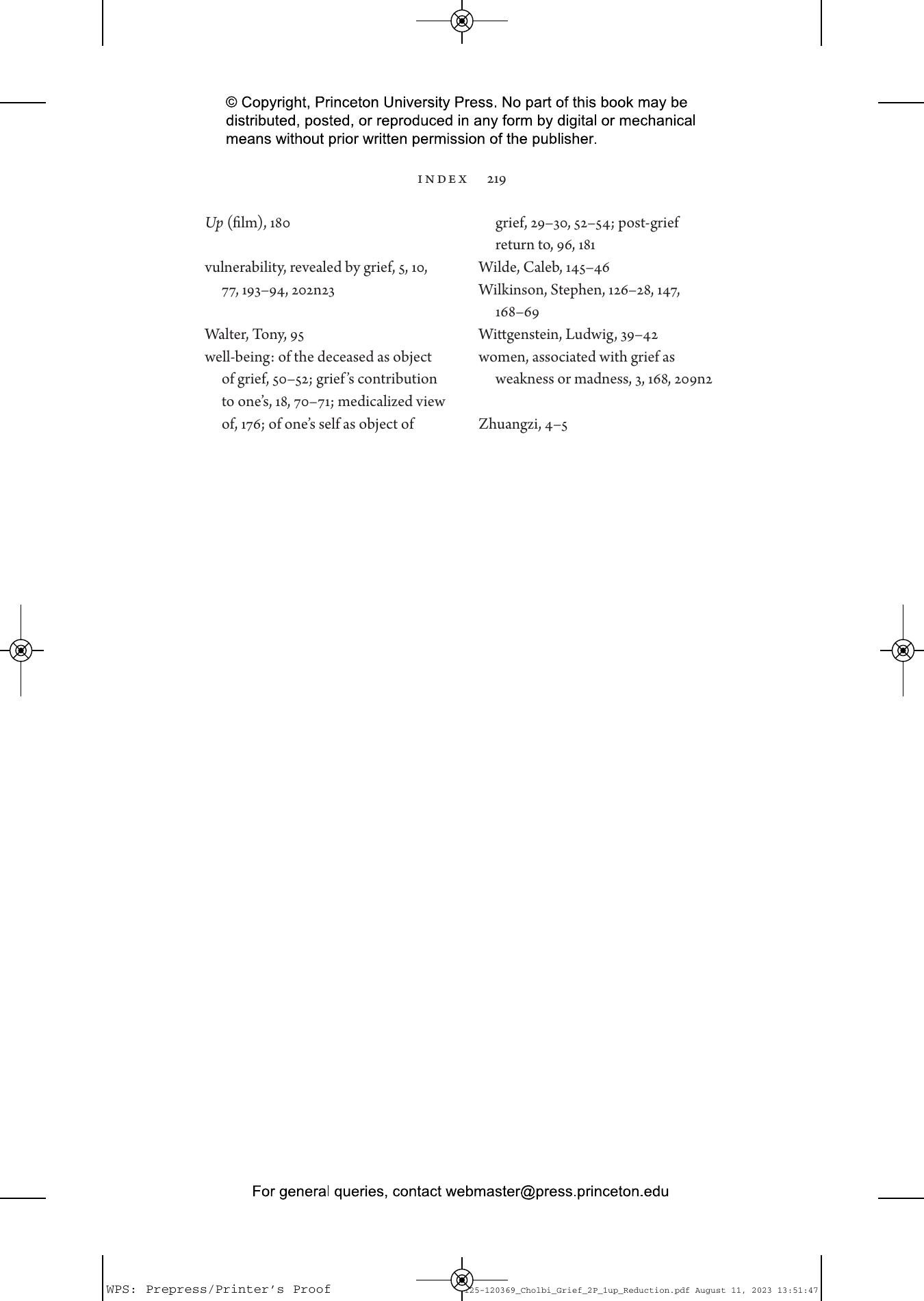Experiencing grief at the death of a person we love or who matters to us—as universal as it is painful—is central to the human condition. Surprisingly, however, philosophers have rarely examined grief in any depth. In Grief, Michael Cholbi presents a groundbreaking philosophical exploration of this complex emotional event, offering valuable new insights about what grief is, whom we grieve, and how grief can ultimately lead us to a richer self-understanding and a fuller realization of our humanity.
Drawing on psychology, social science, and literature as well as philosophy, Cholbi explains that we grieve for the loss of those in whom our identities are invested, including people we don’t know personally but cherish anyway, such as public figures. Their deaths not only deprive us of worthwhile experiences; they also disrupt our commitments and values. Yet grief is something we should embrace rather than avoid, an important part of a good and meaningful life. The key to understanding this paradox, Cholbi says, is that grief offers us a unique and powerful opportunity to grow in self-knowledge by fashioning a new identity. Although grief can be tumultuous and disorienting, it also reflects our distinctly human capacity to rationally adapt as the relationships we depend on evolve.
An original account of how grieving works and why it is so important, Grief shows how the pain of this experience gives us a chance to deepen our relationships with others and ourselves.
"“[A] clear-eyed, meticulously argued study. . . . By bringing grief to philosophy Mr. Cholbi brings philosophy closer to the other humanities; he’s as incisive a critic as he is a philosopher."—Hamilton Cain, Wall Street Journal
"An informative, sweeping, and provocative examination of grief as a complex phenomenon when undertaken in response to the death of others."—Glenn C. Altschuler, Psychology Today
"Fascinating, insightful, and accessible. . . . This well-written, engaging, and thought-provoking book is a brilliant example of applied philosophy. It is relevant to important debates within medicine (for example, recent controversy about definitions of a prolonged grief disorder). It will be interesting and helpful for clinicians caring for those who are bereaved, for philosophers of emotions, and of course, for all of us who, sooner or later, have to navigate the long, dark, and winding valley of loss."—Dominic Wilkinson, Journal of Applied Philosophy
"One of the strengths of Cholbi’s book is in the range of authors from whom he takes accounts of grief: from the personal disclosures of C.S. Lewis to Joan Didion to the fiction of Tolstoy, Camus, and Shakespeare, just to name a few. . . . Excellent. . . . Grief certainly fulfills its aim of encouraging other philosophers to consider the existential phenomenon of grief. Cholbi has prompted such a conversation here in a significant, thoroughgoing, and engaging way."—Brad Deford, Philosophy in Review
"[A] clearly written guide, which addresses many of the most important philosophical issues surrounding grief."—Becky Millar, Philosophical Quarterly
"There is much to like about Cholbi's book. It is short, densely argued, and shows great familiarity with the relevant philosophical, literary, and psychological literatures."—John Danaher, Philosopher’s Magazine
"The ideas [Cholbi] contributes to the experiences of grief were surprisingly comforting. . . . Michael Cholbi’s newest book is definitely one to consider for your next read. I think we could all benefit from understanding the experience of grief a little more."—Joi Foote, Redbrick
"[A] wise book."—Dave Luhrssen, Shepherd Express
"Cholbi’s book is a valuable addition to the contemporary analytic literature on the emotions and on grief"—Ashley Atkins, Ethical Theory and Moral Practice
“A clever, deeply touching book, Grief adds to the growing canon of important, thoughtful writing on this inevitable stage of life that we all need to understand and learn more about. Taking a new, philosophical perspective, Michael Cholbi invites us to think in a way that is accessible but serious—we are all philosophers after all.”—Juliet Rosenfeld, author of The State of Disbelief: A Story of Death, Love, and Forgetting
“Socrates claimed that all of philosophy is training for death, but philosophers have nevertheless been strangely silent on bereavement and grief. Fortunately, we now have Michael Cholbi’s book, which takes us through the key philosophical questions about grief. Revolving around the paradox of grief—that it is painful yet valuable—Cholbi writes clearly and wisely about this fundamental human phenomenon. I recommend this book to anyone who is interested in grief: philosophers, humanists, and general readers will all benefit from it.”—Svend Brinkmann, author of Grief: The Price of Love
“Informed, erudite, and humane, this outstanding book investigates the scope, nature, value, and rationality of grief, presenting a ‘qualified optimism’ against accounts that see grief as a weakness, a source of shame, and a threat to our humanity. Cholbi skillfully deploys resources from philosophy, psychology, psychiatry, literature, and medicine to enhance our understanding of grief, and the book will be of great interest to all those working in these fields, and indeed any of us who want to know more about this central but philosophically neglected element of human experience.”—Michael S. Brady, author of Suffering and Virtue
“An engaging and illuminating contribution to the philosophy of death, Grief advances a novel and surprising account of what grief is and what makes it rationally defensible, valuable, and perhaps even obligatory. A humane, thoughtful, and insightful book, Grief will be invaluable to sociologists, anthropologists, psychologists, and psychiatrists, while general readers will also find it accessible and compelling.”—Patrick Stokes, author of Digital Souls: A Philosophy of Online Death
